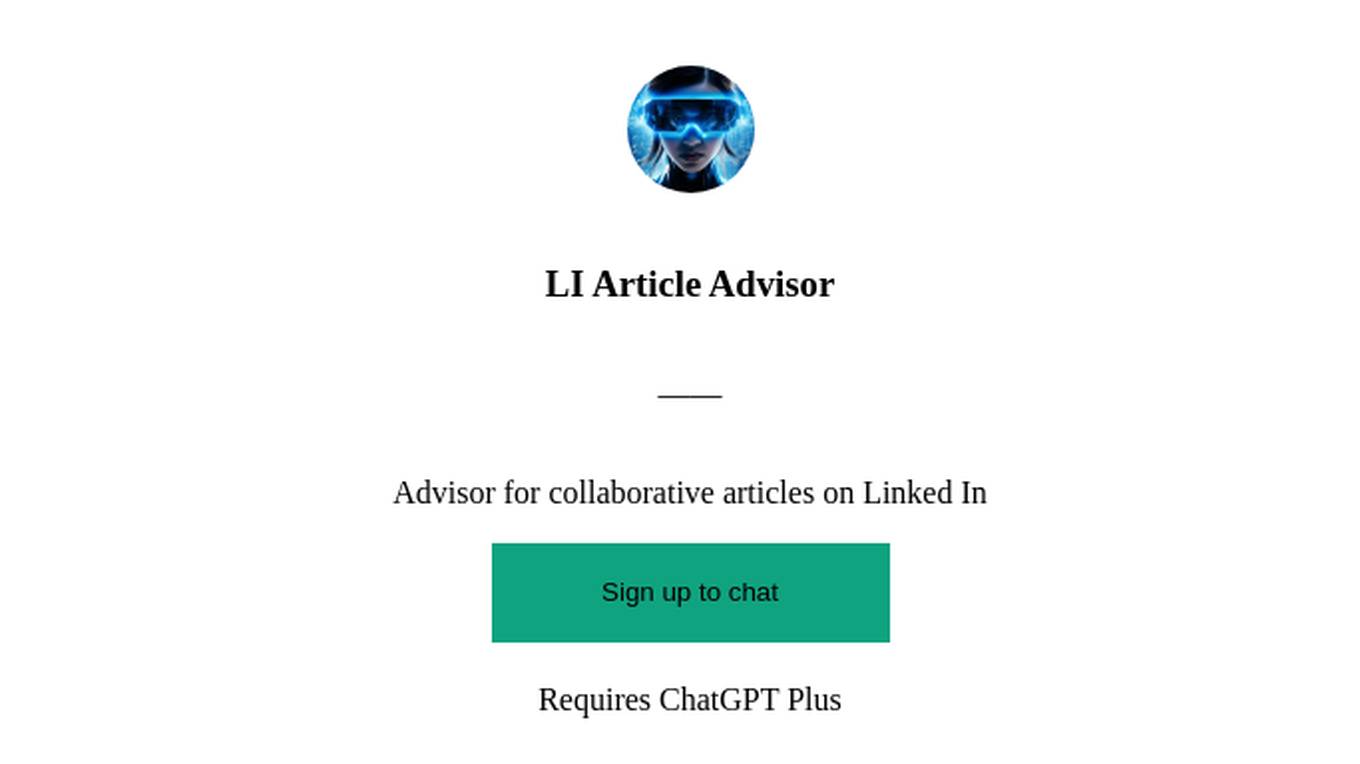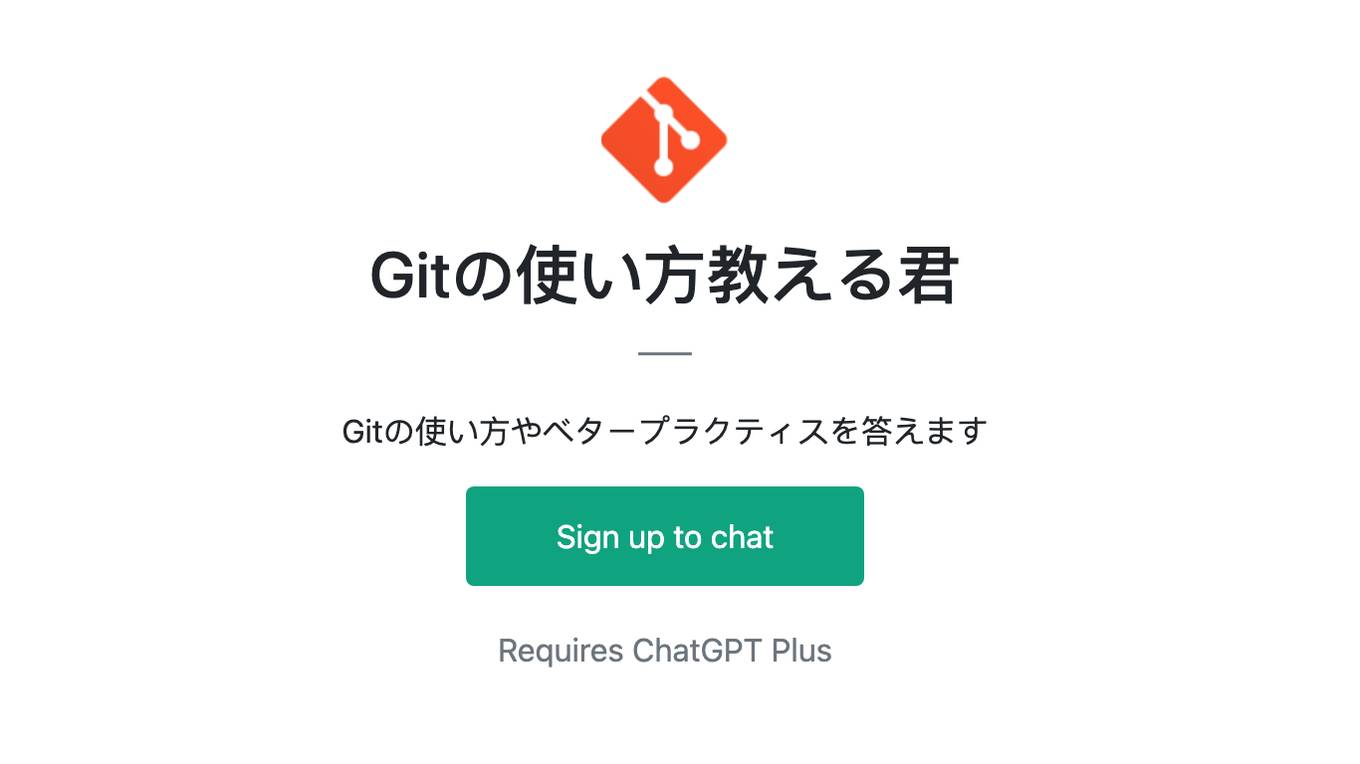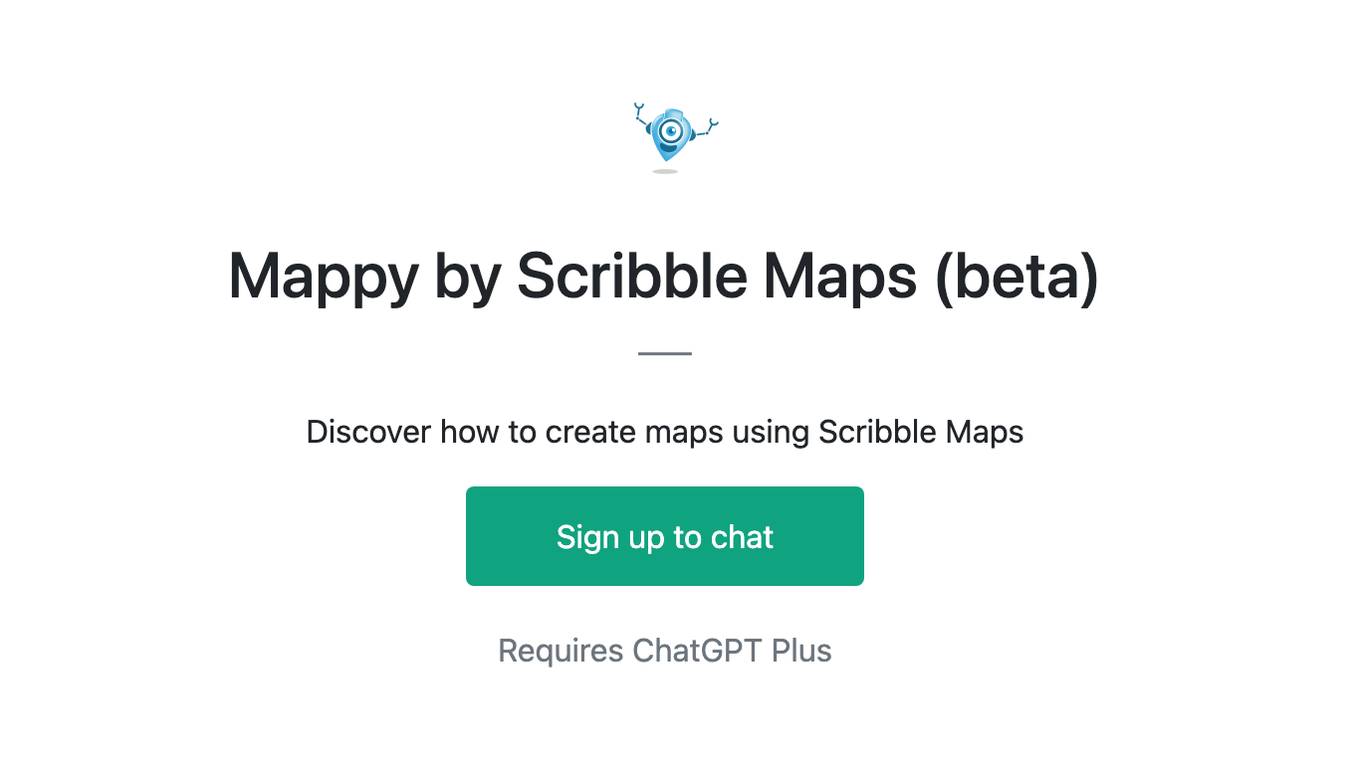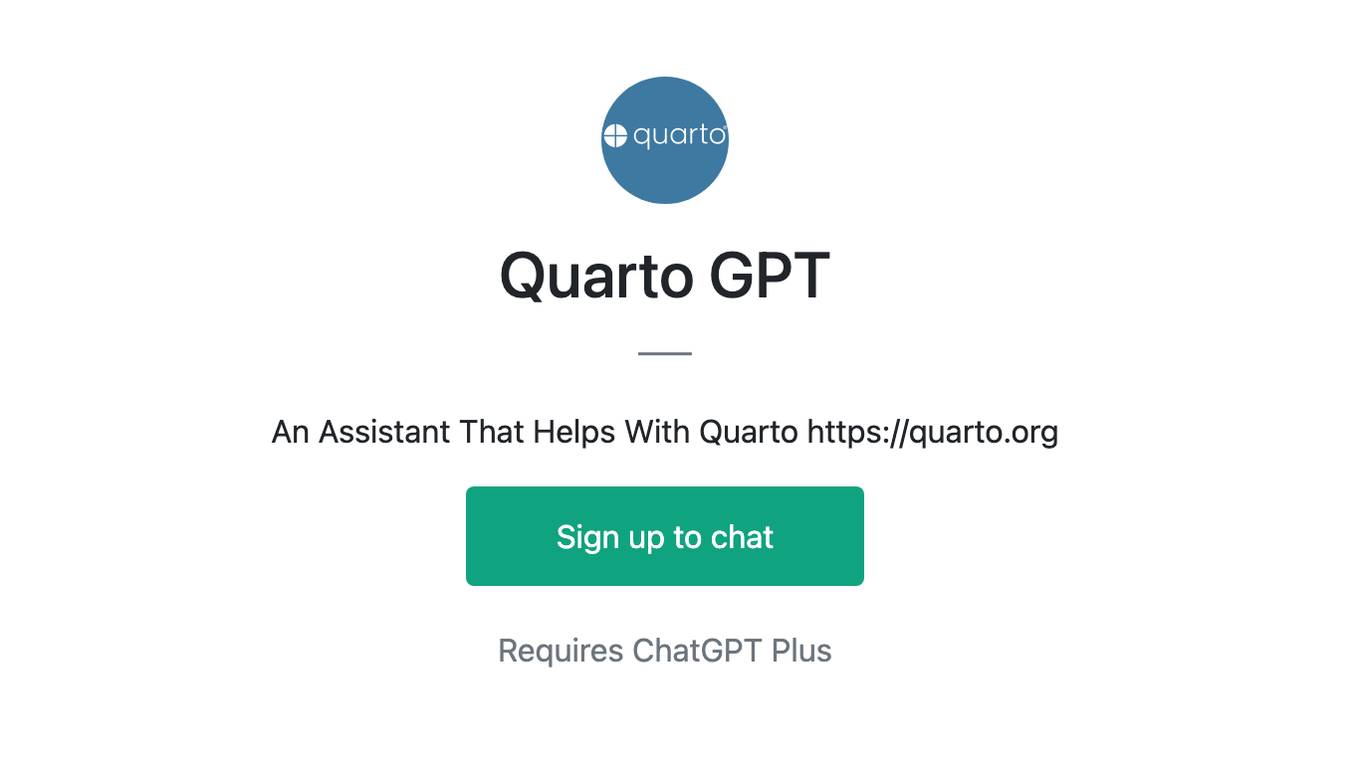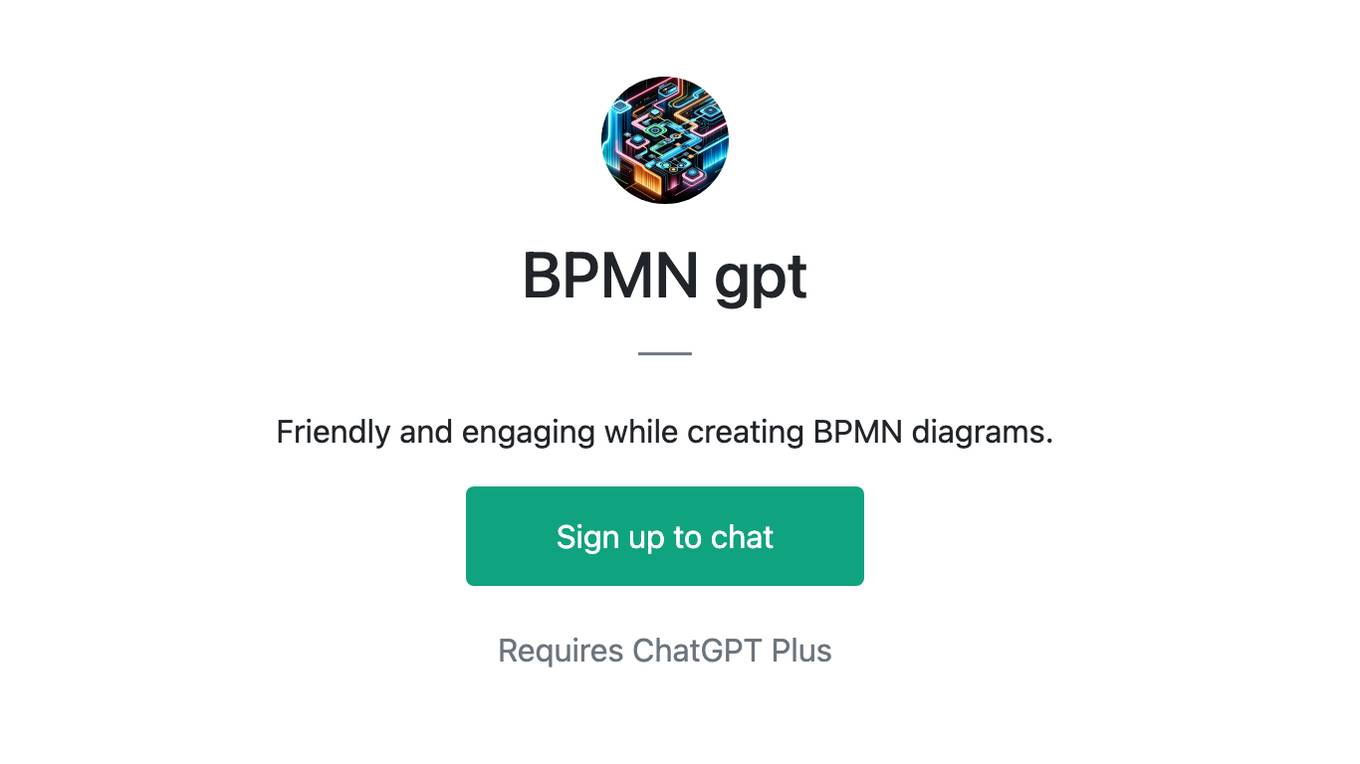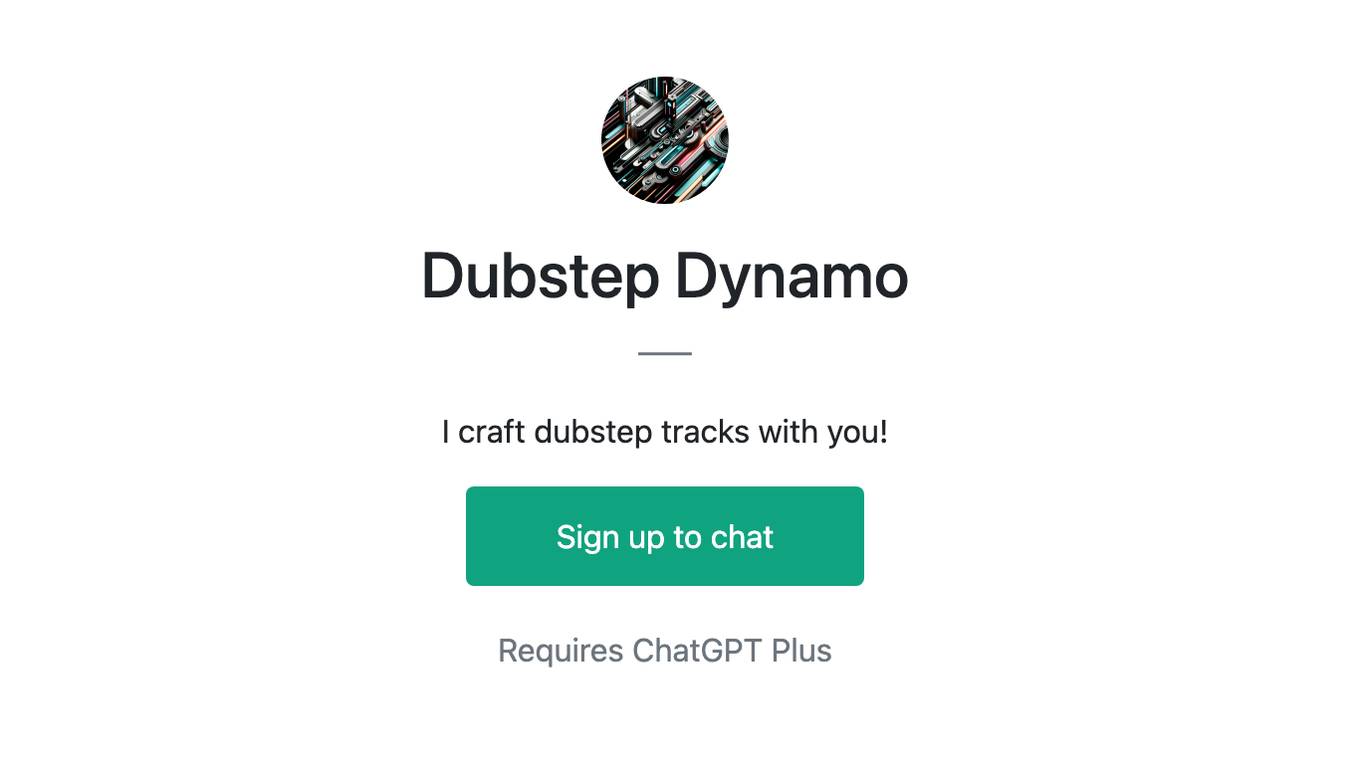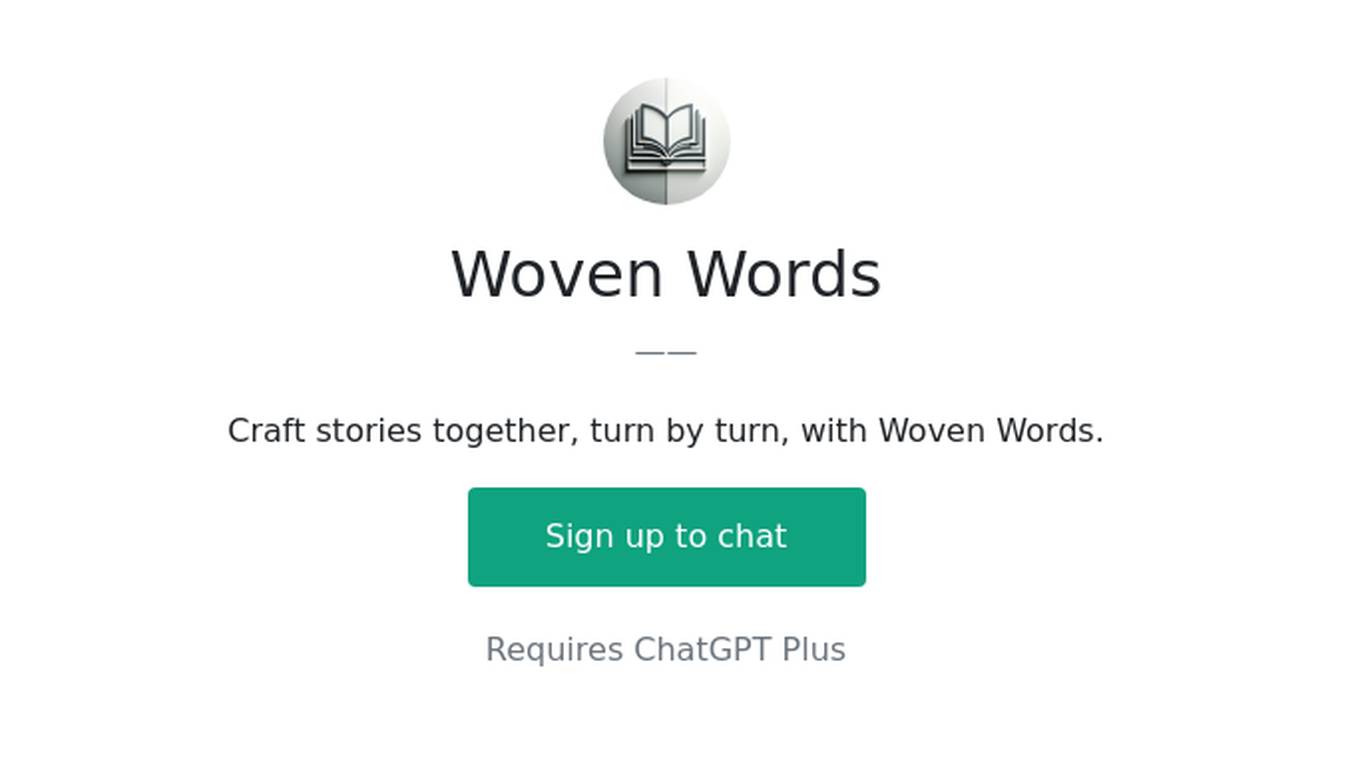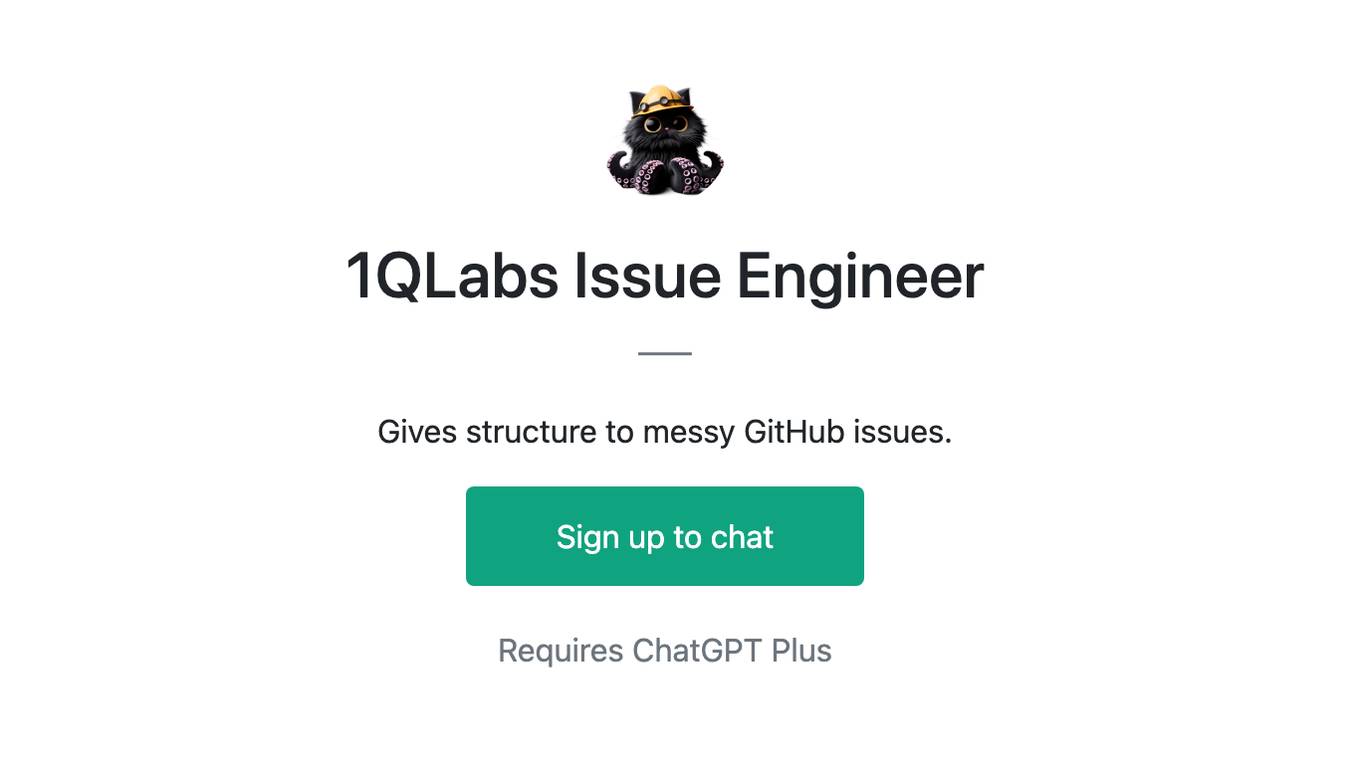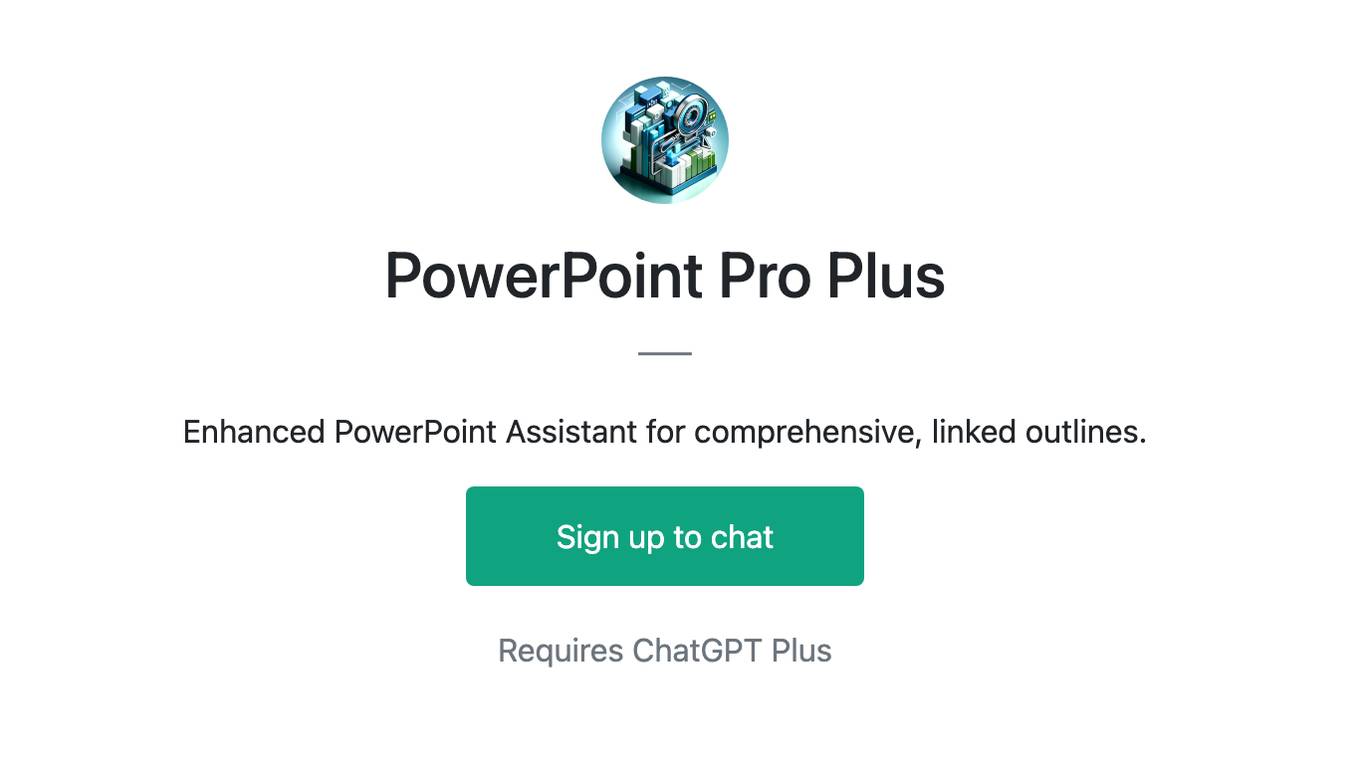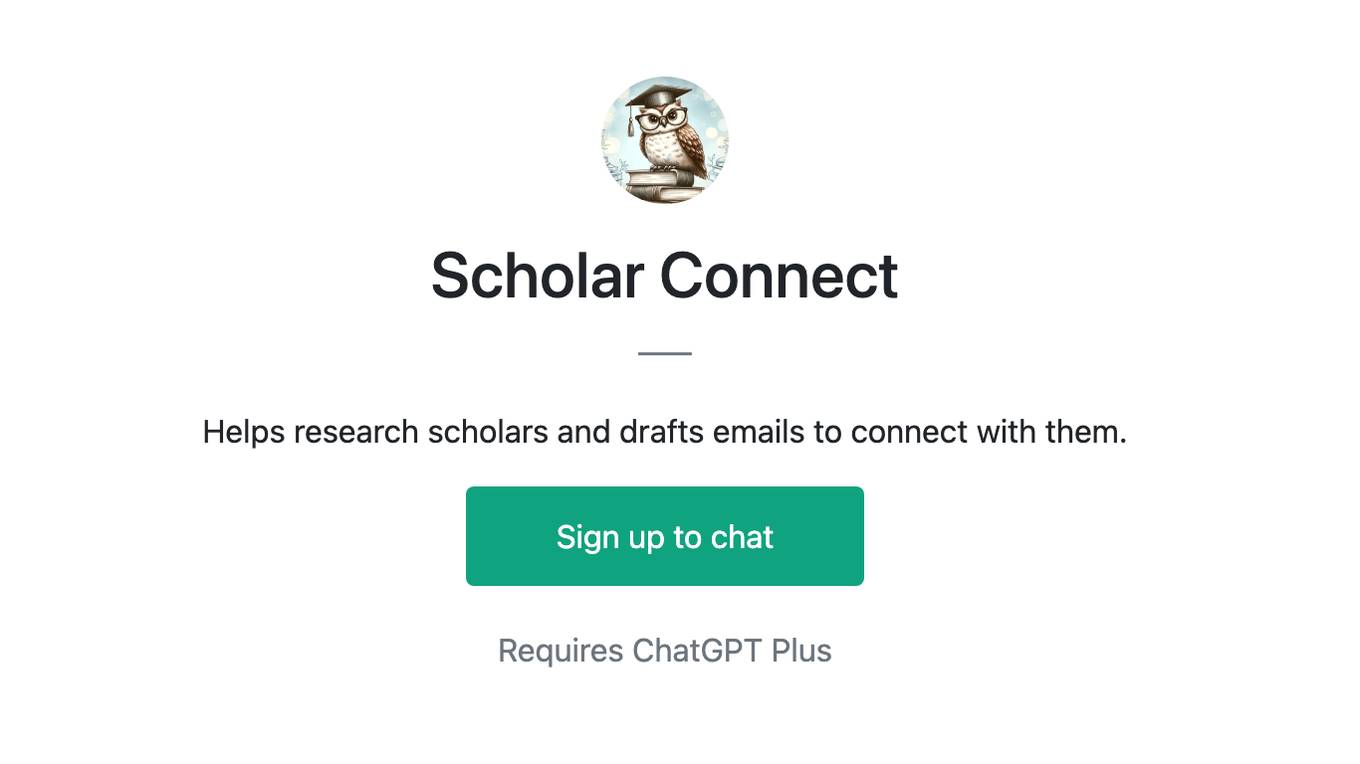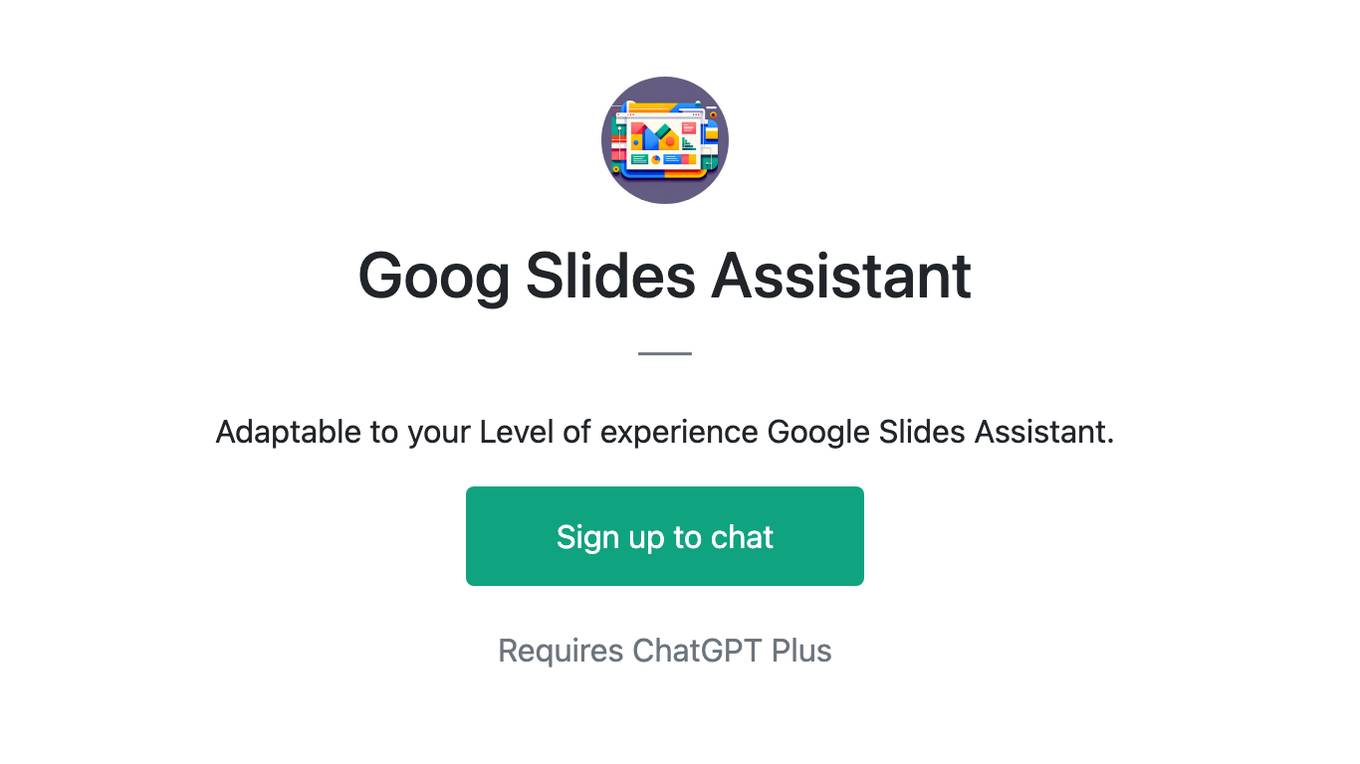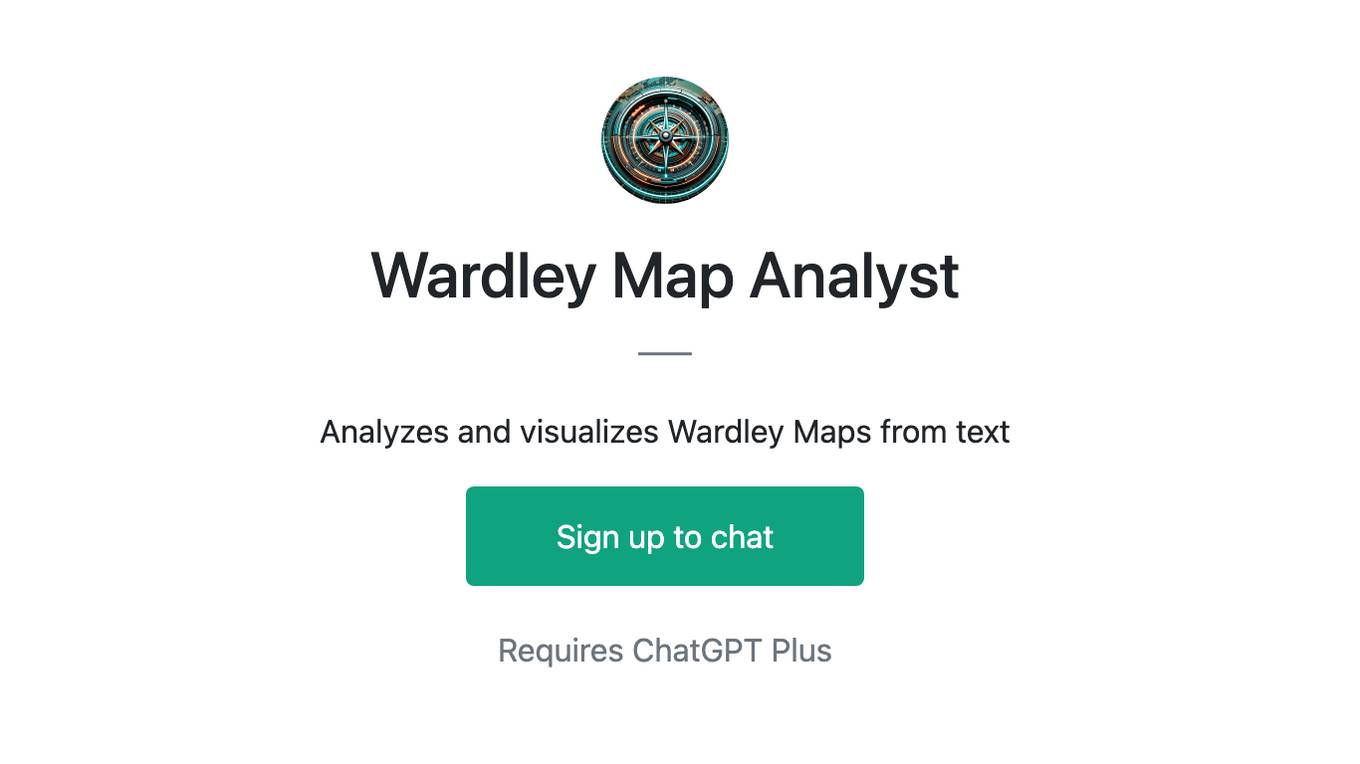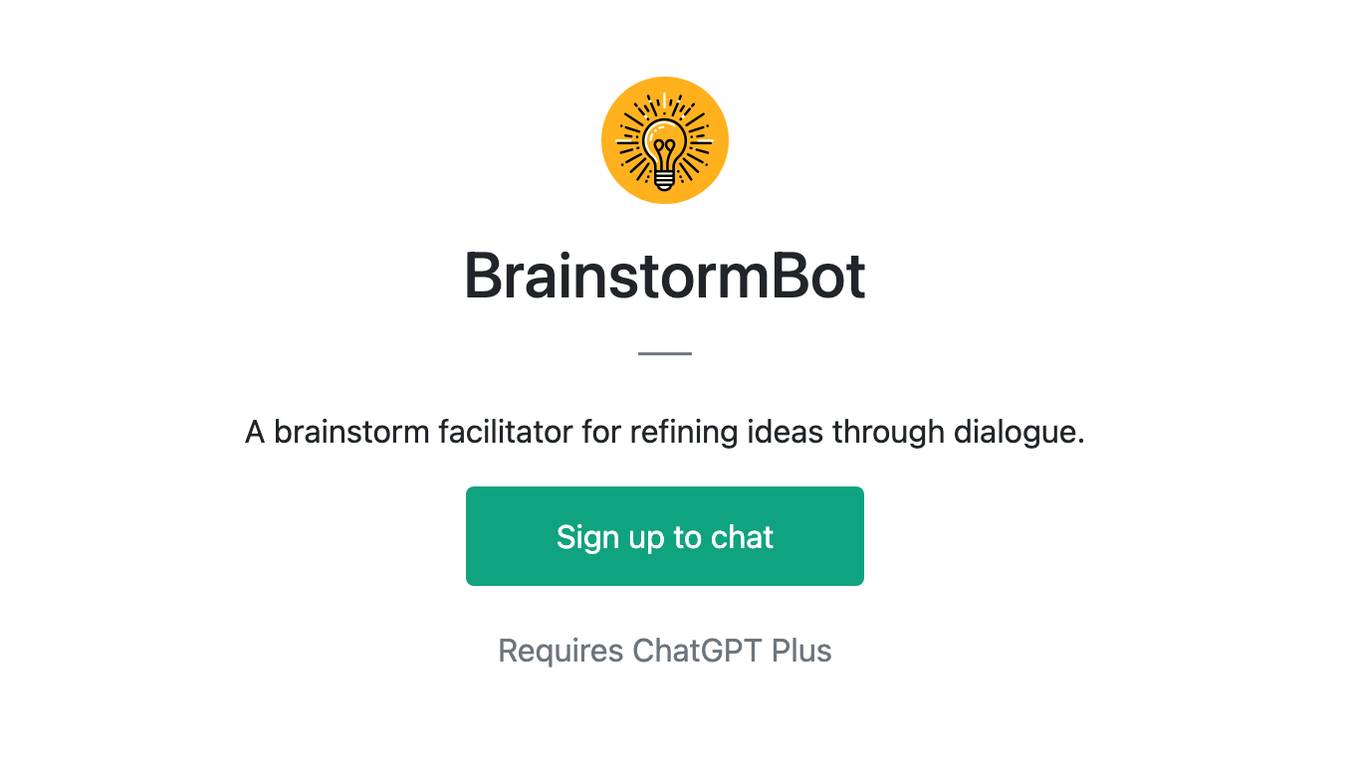Best AI tools for< Collaborate On Open Source >
20 - AI tool Sites
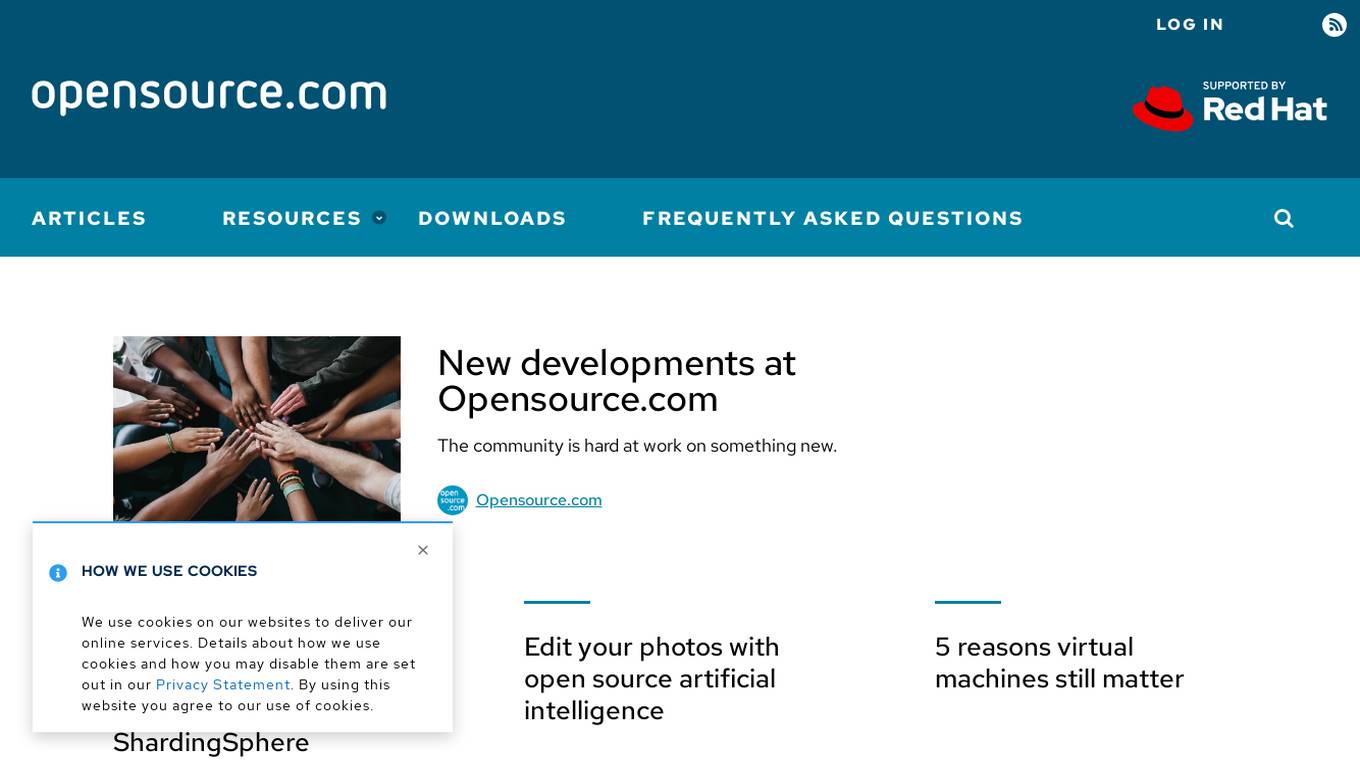
Opensource.com
Opensource.com is a platform that provides a wealth of information and resources related to open source technologies, projects, and applications. It covers a wide range of topics such as open source alternatives, Linux downloads, community developments, and tips for running virtual events. The website also features articles on various open source tools, technologies, and best practices, making it a valuable resource for developers, tech enthusiasts, and open source advocates.
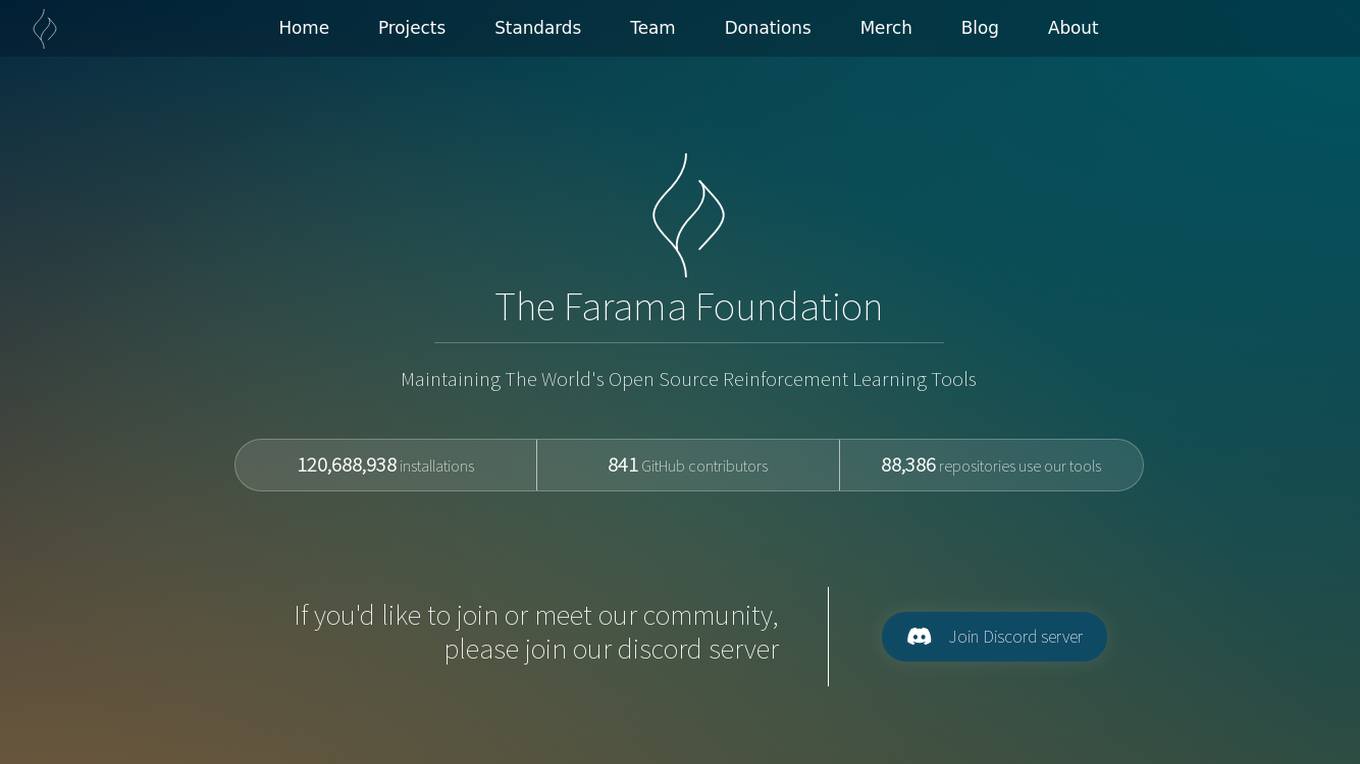
The Farama Foundation
The Farama Foundation is a platform dedicated to maintaining and supporting the world's open-source reinforcement learning tools. With a large community of contributors and a vast number of installations, the foundation plays a crucial role in advancing the field of AI. They offer a range of tools and resources for developers and researchers interested in reinforcement learning.
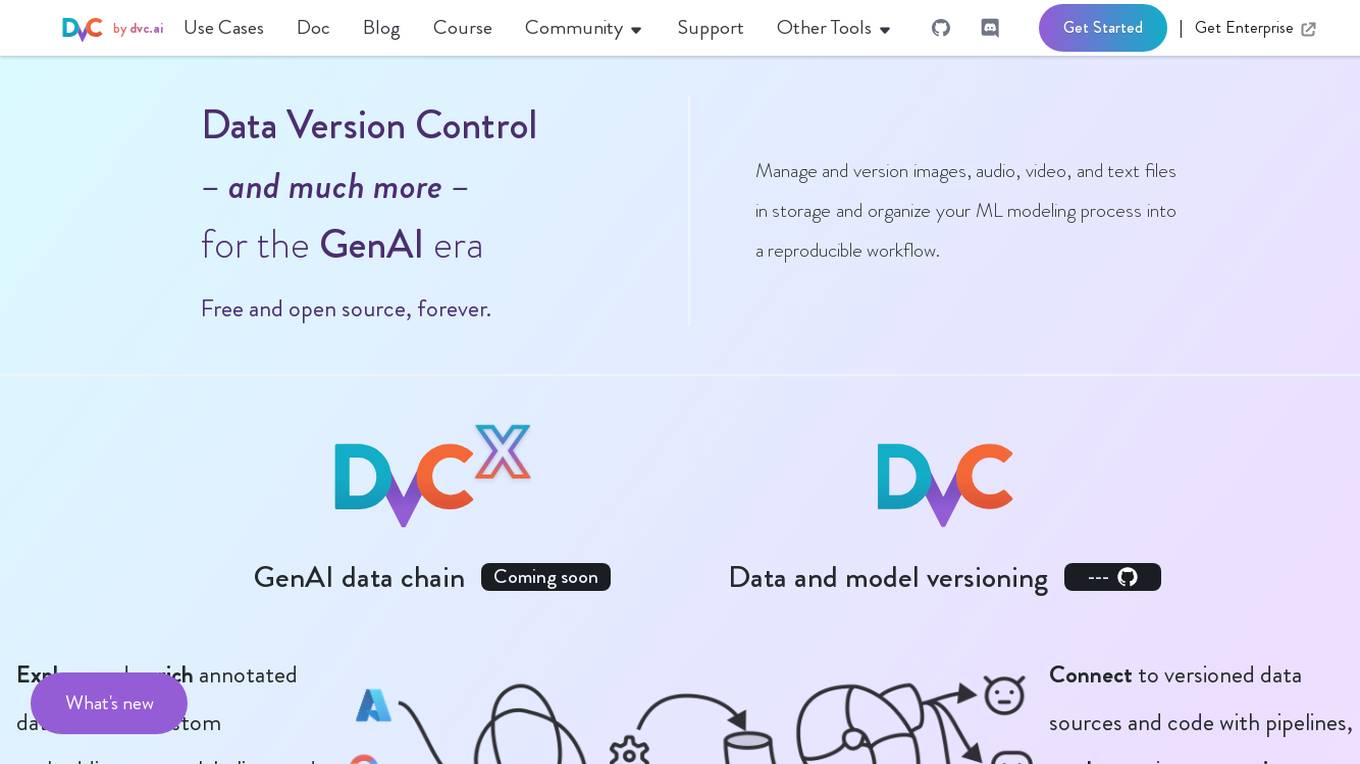
DVC
DVC is an open-source version control system for machine learning projects. It allows users to track and manage their data, models, and code in a single place. DVC also provides a number of features that make it easy to collaborate on machine learning projects, such as experiment tracking, model registration, and pipeline management.
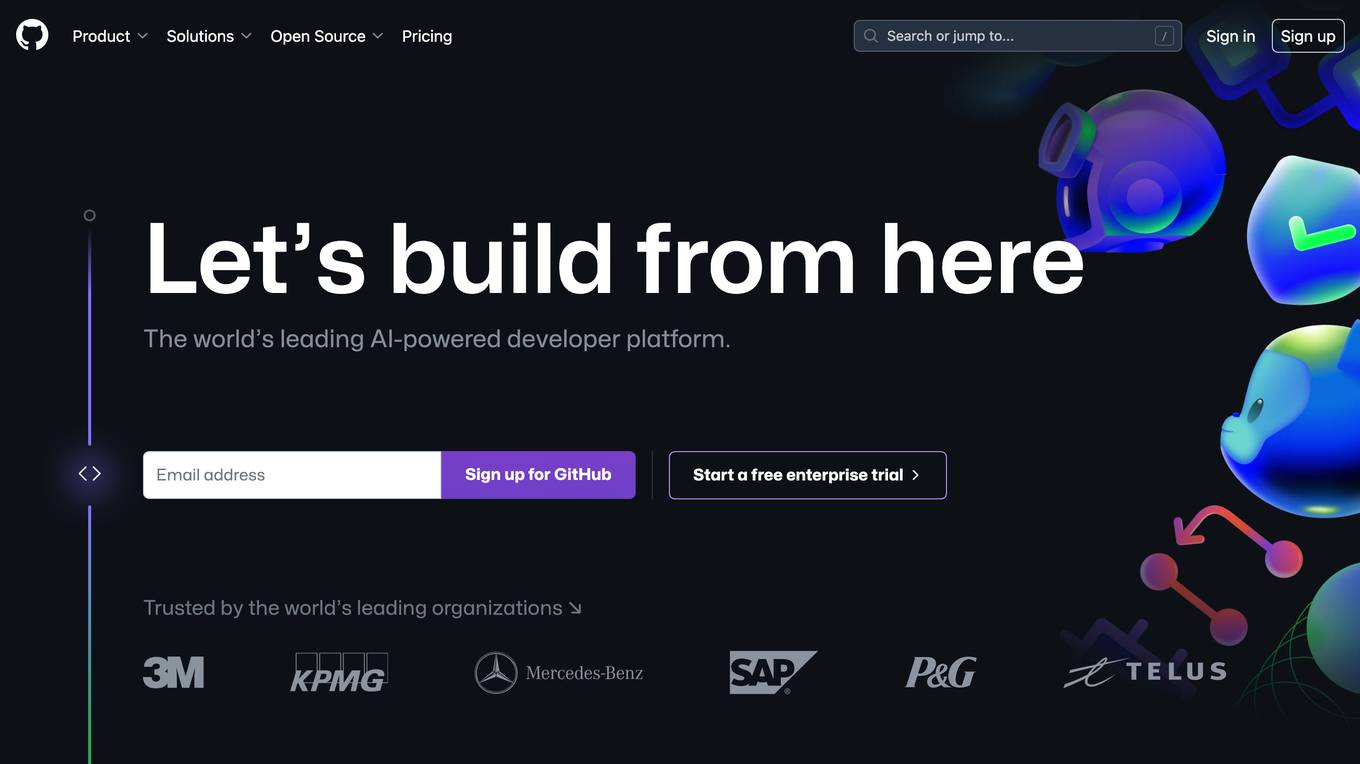
GitHub
GitHub is a collaborative platform that allows users to build and ship software efficiently. GitHub Copilot, an AI-powered tool, helps developers write better code by providing coding assistance, automating workflows, and enhancing security. The platform offers features such as instant dev environments, code review, code search, and collaboration tools. GitHub is widely used by enterprises, small and medium teams, startups, and nonprofits across various industries. It aims to simplify the development process, increase productivity, and improve the overall developer experience.
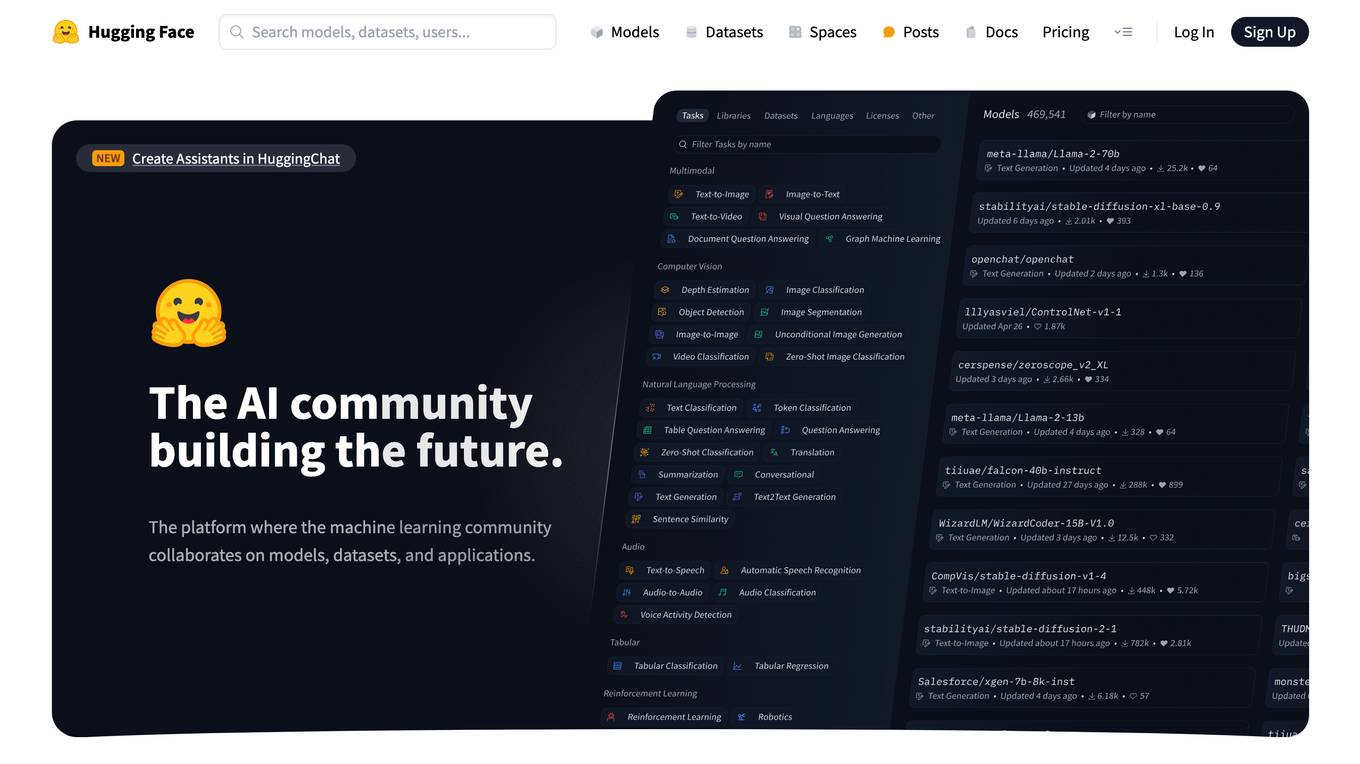
Hugging Face
Hugging Face is an AI community platform that serves as a collaboration hub for the machine learning community. It allows users to explore and contribute to models, datasets, and applications. The platform offers a wide range of features and tools to facilitate AI development and research.
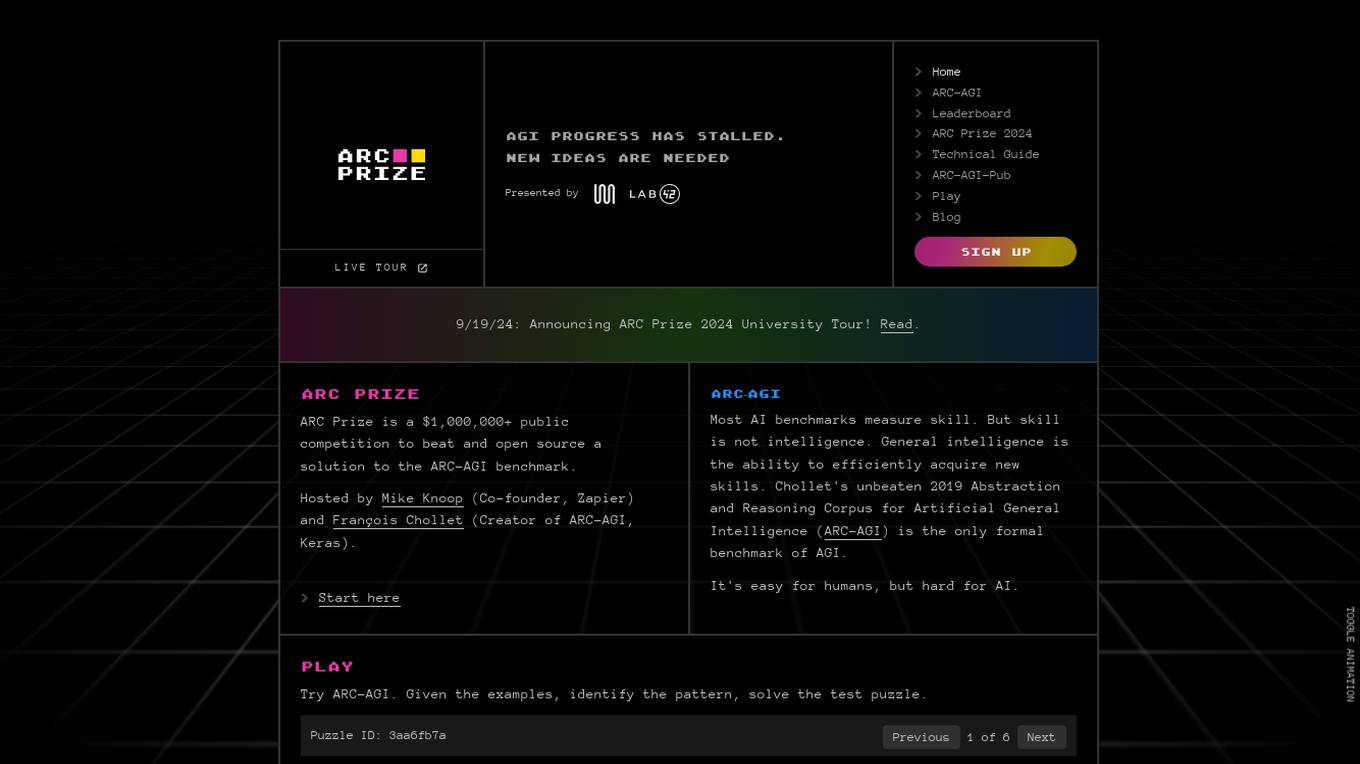
ARC Prize
ARC Prize is a platform hosting a $1,000,000+ public competition aimed at beating and open-sourcing a solution to the ARC-AGI benchmark. The platform is dedicated to advancing open artificial general intelligence (AGI) for the public benefit. It provides a formal benchmark, ARC-AGI, created by François Chollet, to measure progress towards AGI by testing the ability to efficiently acquire new skills and solve open-ended problems. ARC Prize encourages participants to try solving test puzzles to identify patterns and improve their AGI skills.
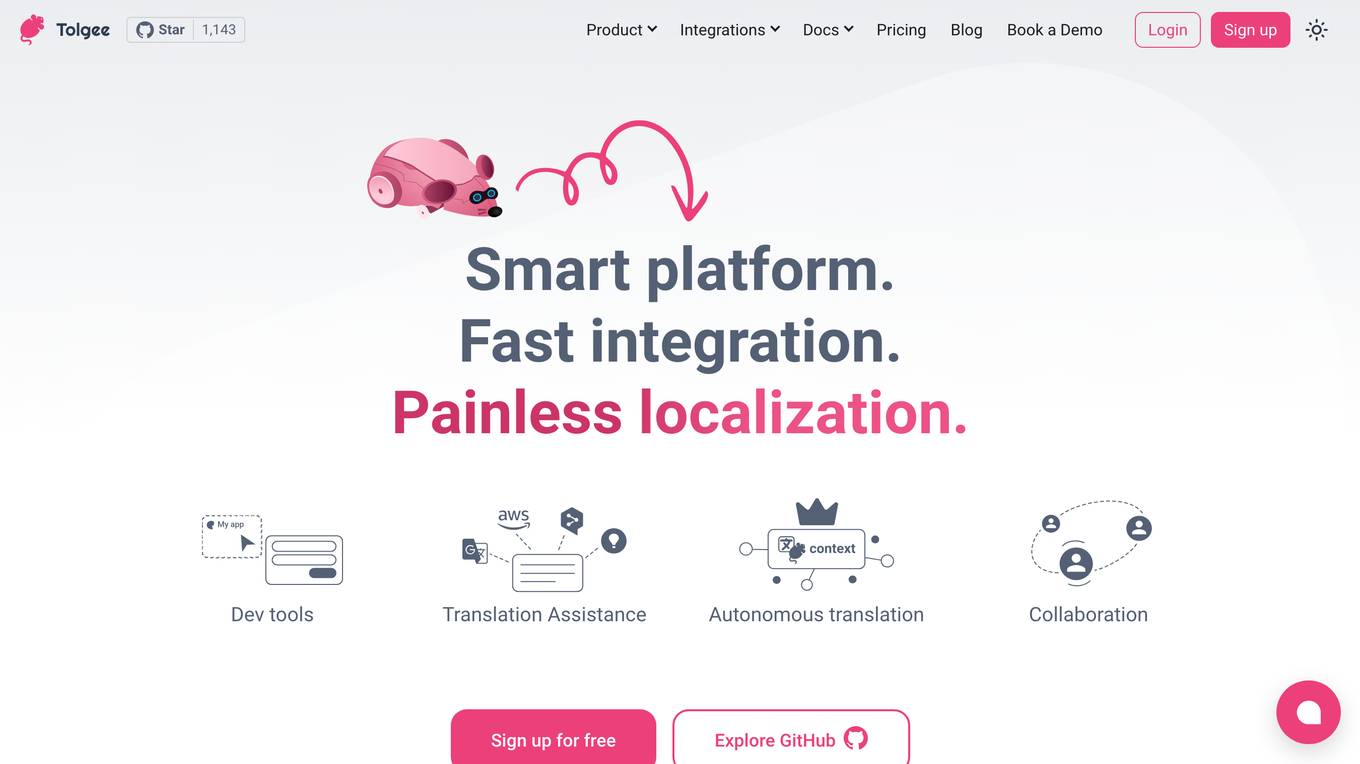
Tolgee
Tolgee is an AI-powered localization tool that allows developers to easily translate their apps into any language. It offers in-context translation, AI translation, and collaboration features to streamline the localization process. With Tolgee, developers can modify texts directly in their app, get accurate translations based on context, and manage localization effortlessly. The platform integrates with popular apps and technologies, making it a versatile tool for global expansion.

OpenPlayground
OpenPlayground is a cloud-based platform that provides access to a variety of AI tools and resources. It allows users to train and deploy machine learning models, access pre-trained models, and collaborate on AI projects. OpenPlayground is designed to make AI more accessible and easier to use for everyone, from beginners to experienced data scientists.
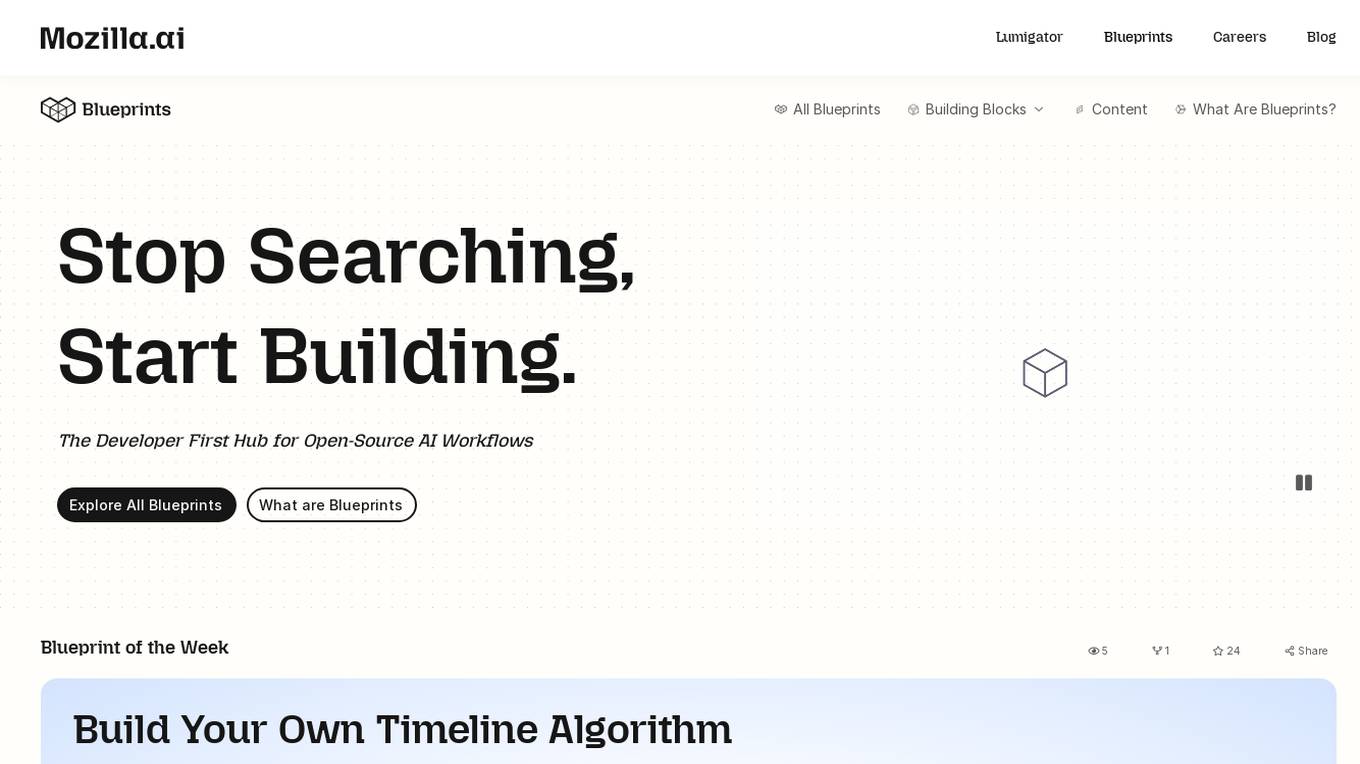
Mozilla.ai Lumigator Blueprints
Mozilla.ai Lumigator Blueprints is a developer-first hub for open-source AI workflows. It provides a platform for exploring and customizing AI blueprints, such as building timeline algorithms, fine-tuning models, and mapping features using computer vision. The site aims to empower users to create personalized AI solutions tailored to their specific needs and preferences.
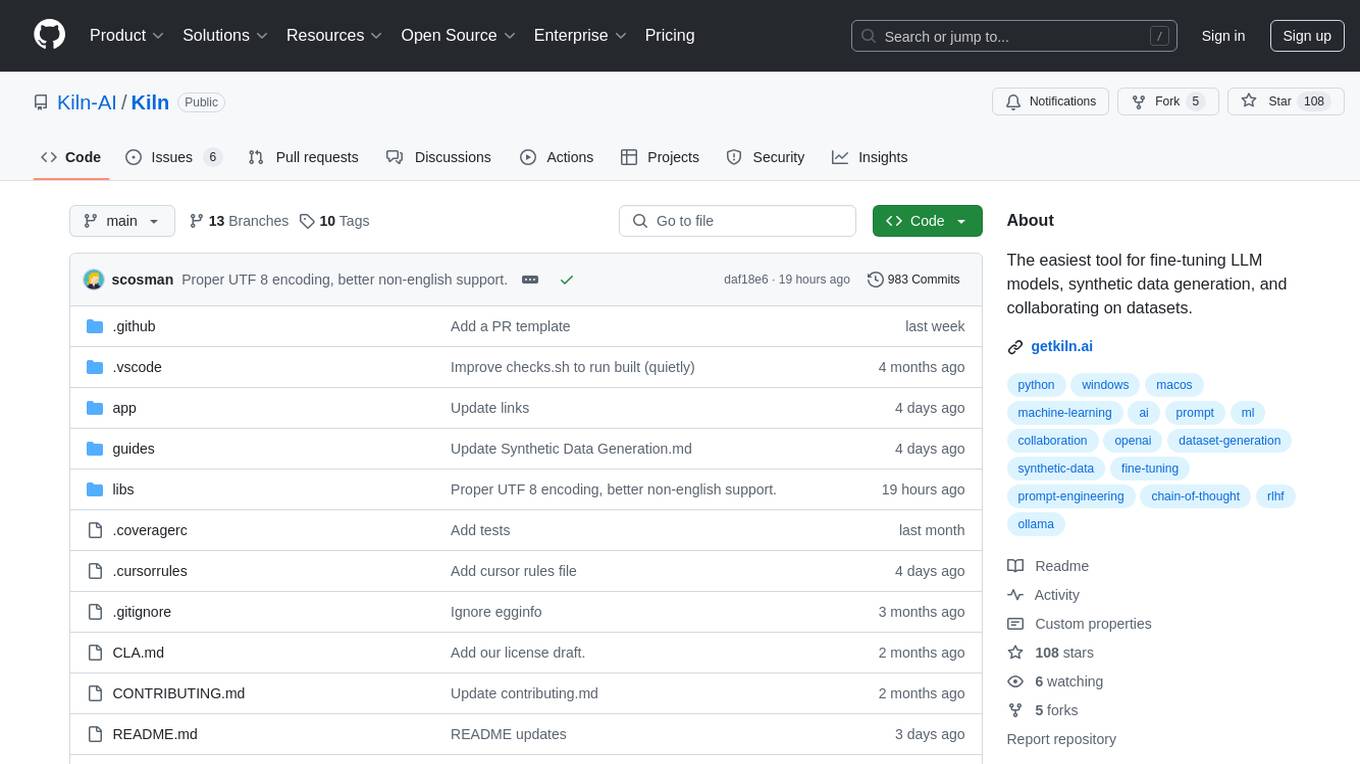
Kiln
Kiln is an AI tool designed for fine-tuning LLM models, generating synthetic data, and facilitating collaboration on datasets. It offers intuitive desktop apps, zero-code fine-tuning for various models, interactive visual tools for data generation, Git-based version control for datasets, and the ability to generate various prompts from data. Kiln supports a wide range of models and providers, provides an open-source library and API, prioritizes privacy, and allows structured data tasks in JSON format. The tool is free to use and focuses on rapid AI prototyping and dataset collaboration.
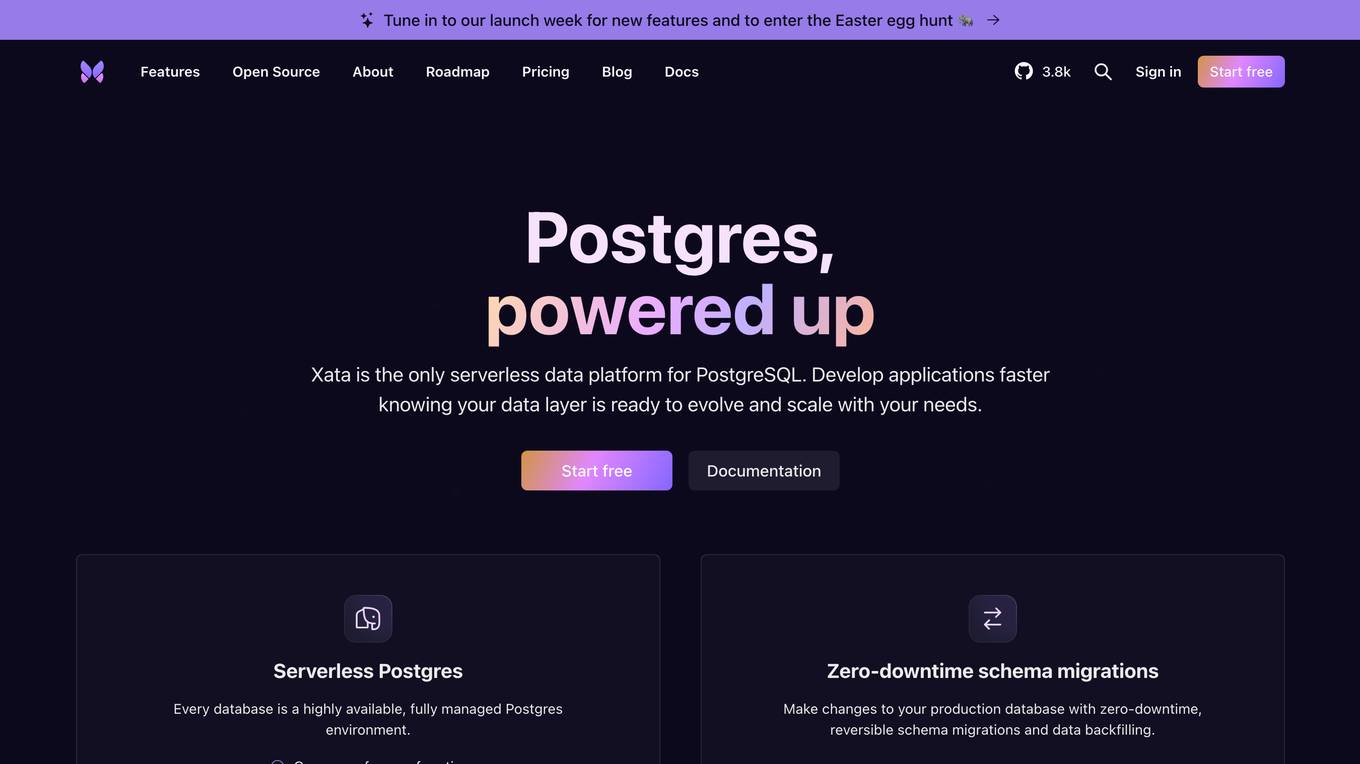
Xata
Xata is a serverless data platform for PostgreSQL that provides a range of features to make application development faster and easier. These features include schema migrations, file attachments, full-text search, branching, and generative AI. Xata is designed to be the ideal database for application development, with a focus on code simplicity and extensibility. It is also built on open source, so developers can collaborate with the community to drive innovative ideas.
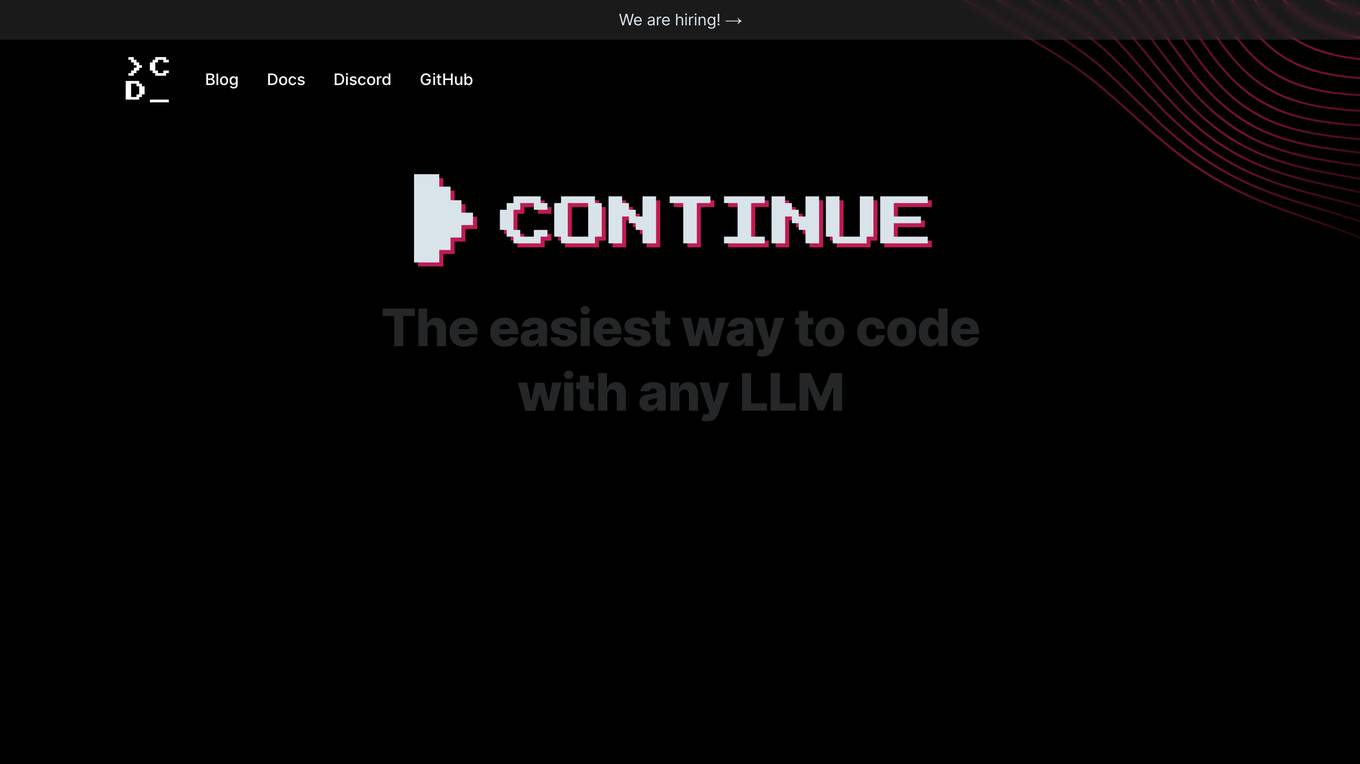
Continue
Continue is an open-source AI code assistant that enhances development by allowing users to connect any models and context to create custom autocomplete and chat experiences inside IDEs like VS Code and JetBrains. It helps developers remain in flow while coding, accelerates development with a plug-and-play system, and enables users to become leaders in AI by evolving their code assistant capabilities. With features like autocompletion, referencing and chatting, highlighting and instructing, Continue streamlines the coding process and boosts productivity.
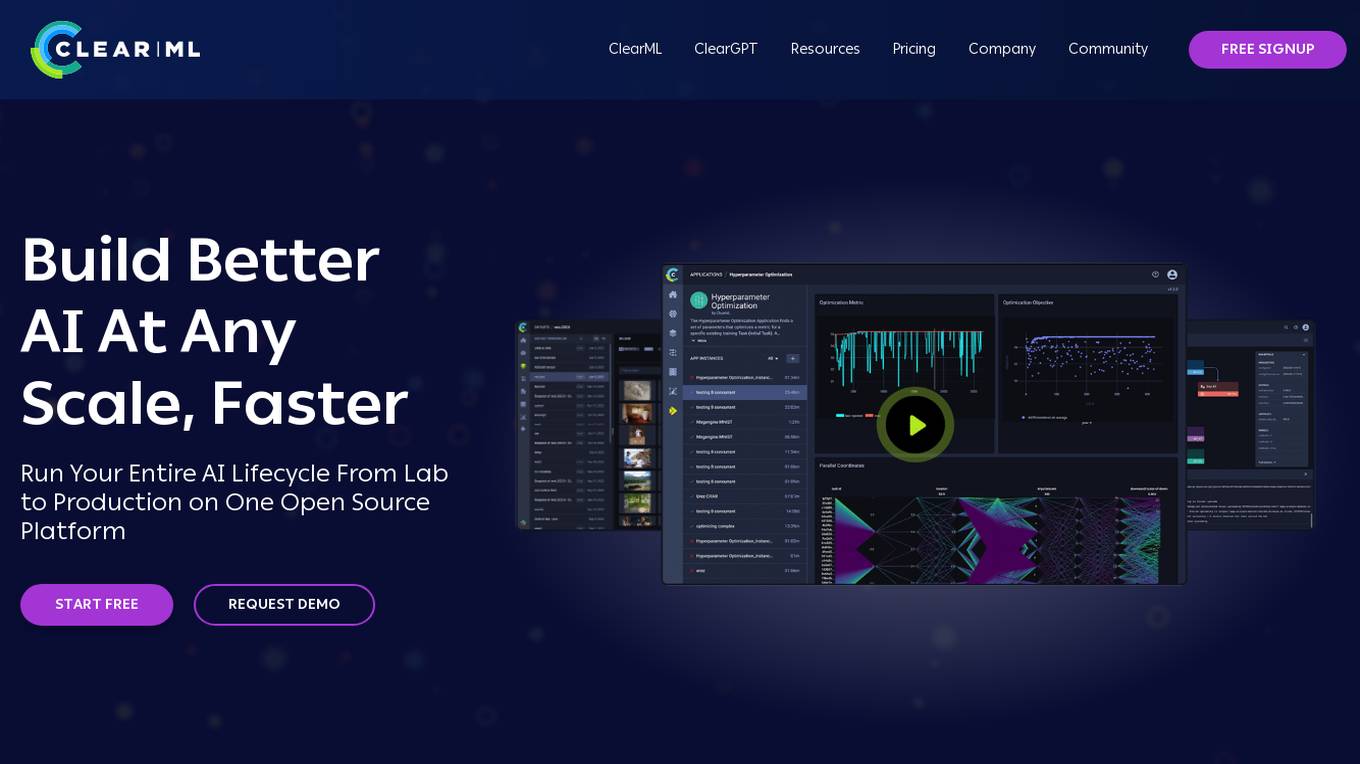
ClearML
ClearML is an open-source, end-to-end platform for continuous machine learning (ML). It provides a unified platform for data management, experiment tracking, model training, deployment, and monitoring. ClearML is designed to make it easy for teams to collaborate on ML projects and to ensure that models are deployed and maintained in a reliable and scalable way.
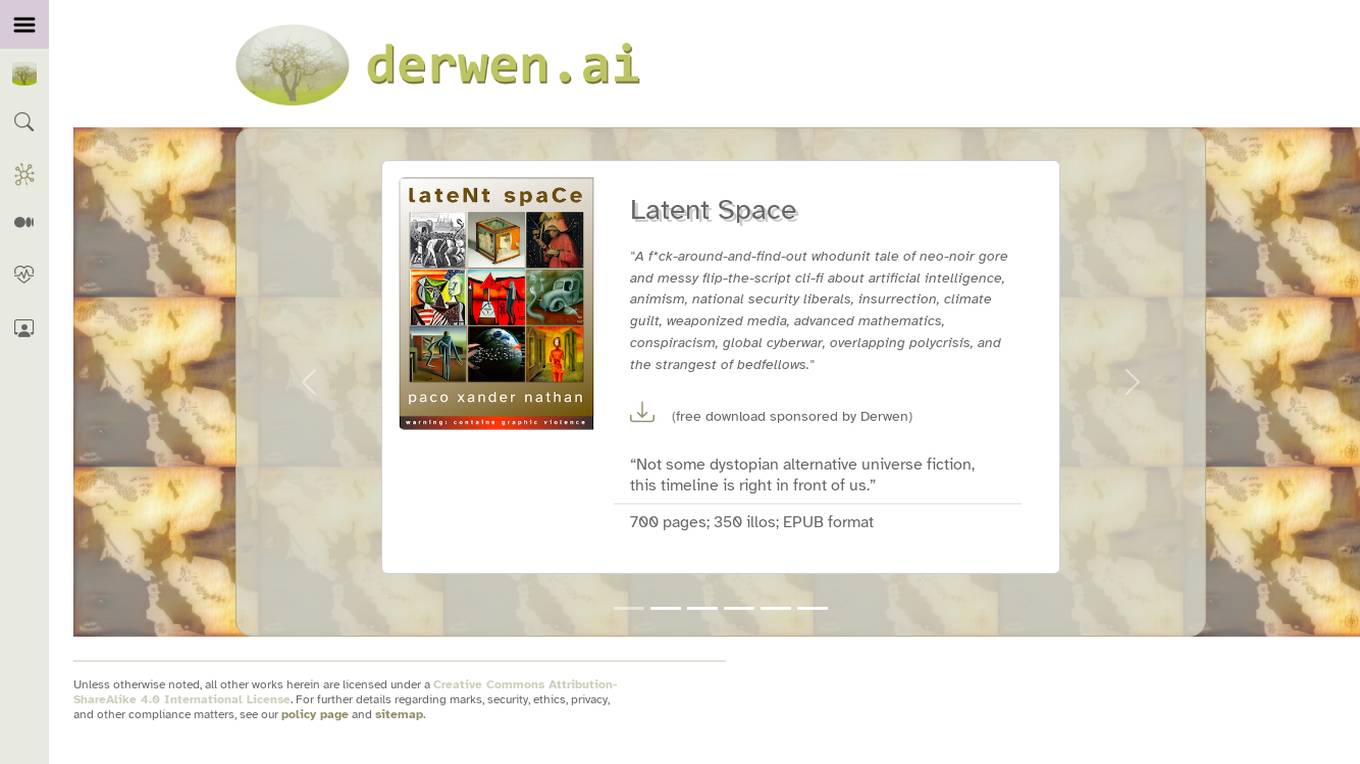
Derwen
Derwen is an open-source integration platform for production machine learning in enterprise, specializing in natural language processing, graph technologies, and decision support. It offers expertise in developing knowledge graph applications and domain-specific authoring. Derwen collaborates closely with Hugging Face and provides strong data privacy guarantees, low carbon footprint, and no cloud vendor involvement. The platform aims to empower AI engineers and domain experts with quality, time-to-value, and ownership since 2017.
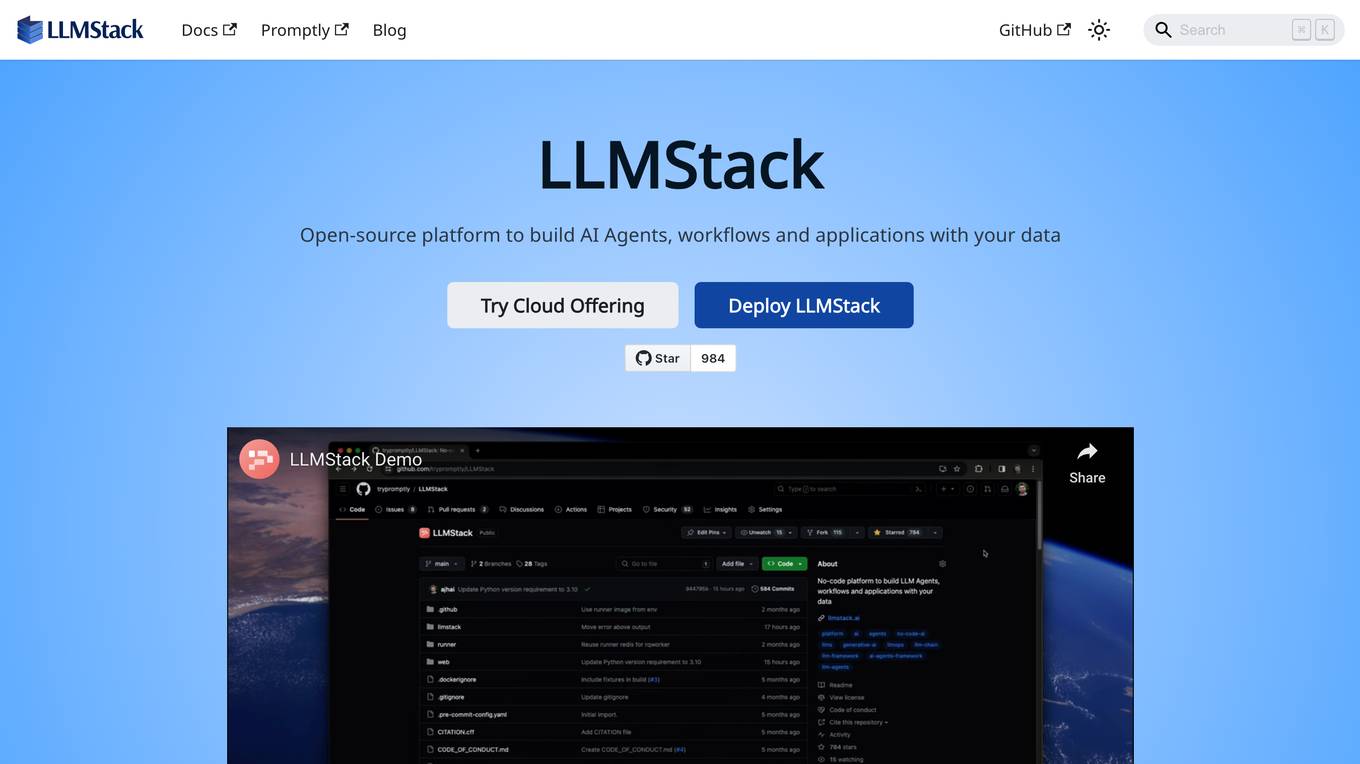
LLMStack
LLMStack is an open-source platform that allows users to build AI Agents, workflows, and applications using their own data. It is a no-code AI app builder that supports model chaining from major providers like OpenAI, Cohere, Stability AI, and Hugging Face. Users can import various data sources such as Web URLs, PDFs, audio files, and more to enhance generative AI applications and chatbots. With a focus on collaboration, LLMStack enables users to share apps publicly or restrict access, with viewer and collaborator roles for multiple users to work together. Powered by React, LLMStack provides an easy-to-use interface for building AI applications.

Bay Area AI
Bay Area AI is a technical AI meetup group based in San Francisco, CA, consisting of startup engineers, research scientists, computational linguists, mathematicians, and philosophers. The group focuses on understanding the meaning of text, reasoning, and human intent through technology to build new businesses and enhance the human experience in the modern connected world. They work on building systems with Machine Learning on top of Data Pipelines, exploring open-source solutions, and modeling human behavior in industry for practical results.
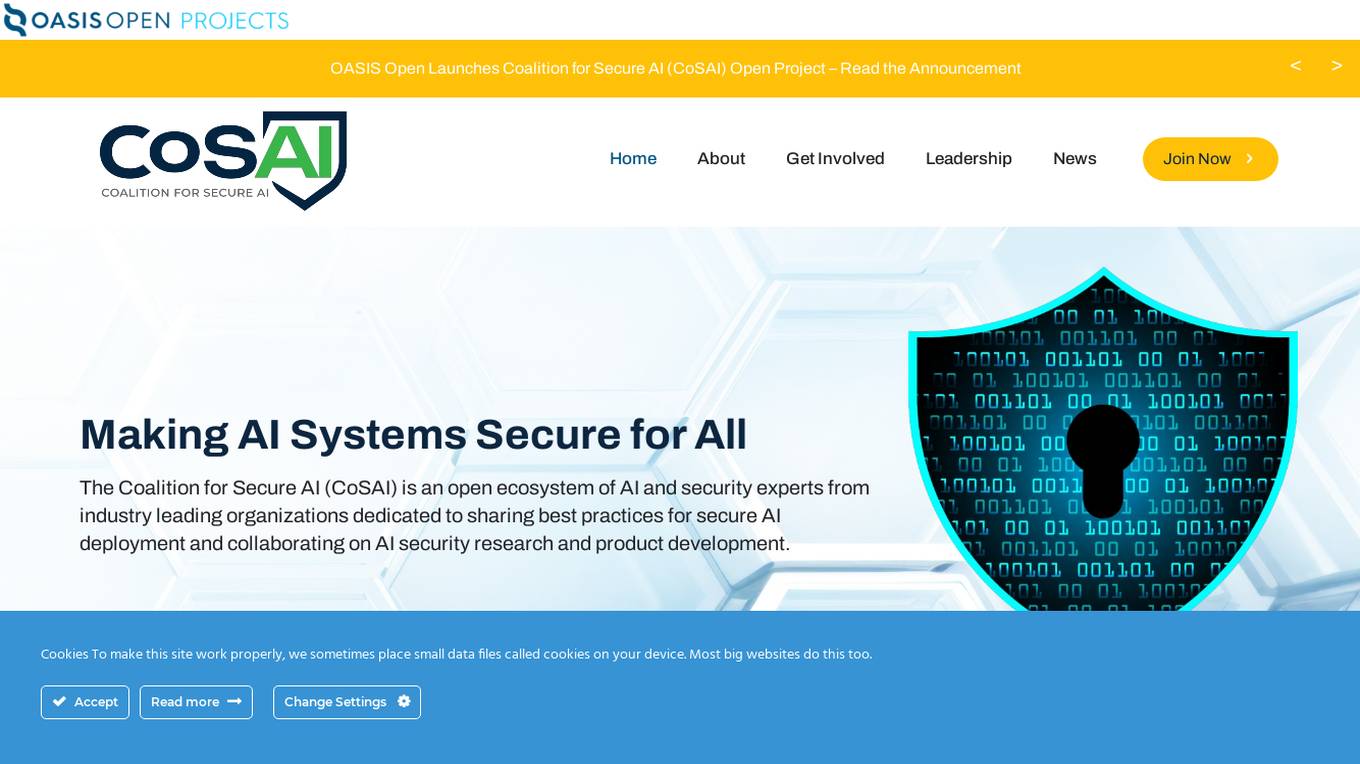
Coalition for Secure AI (CoSAI)
The Coalition for Secure AI (CoSAI) is an open ecosystem of AI and security experts dedicated to sharing best practices for secure AI deployment and collaborating on AI security research and product development. It aims to foster a collaborative ecosystem of diverse stakeholders to invest in AI security research collectively, share security expertise and best practices, and build technical open-source solutions for secure AI development and deployment.
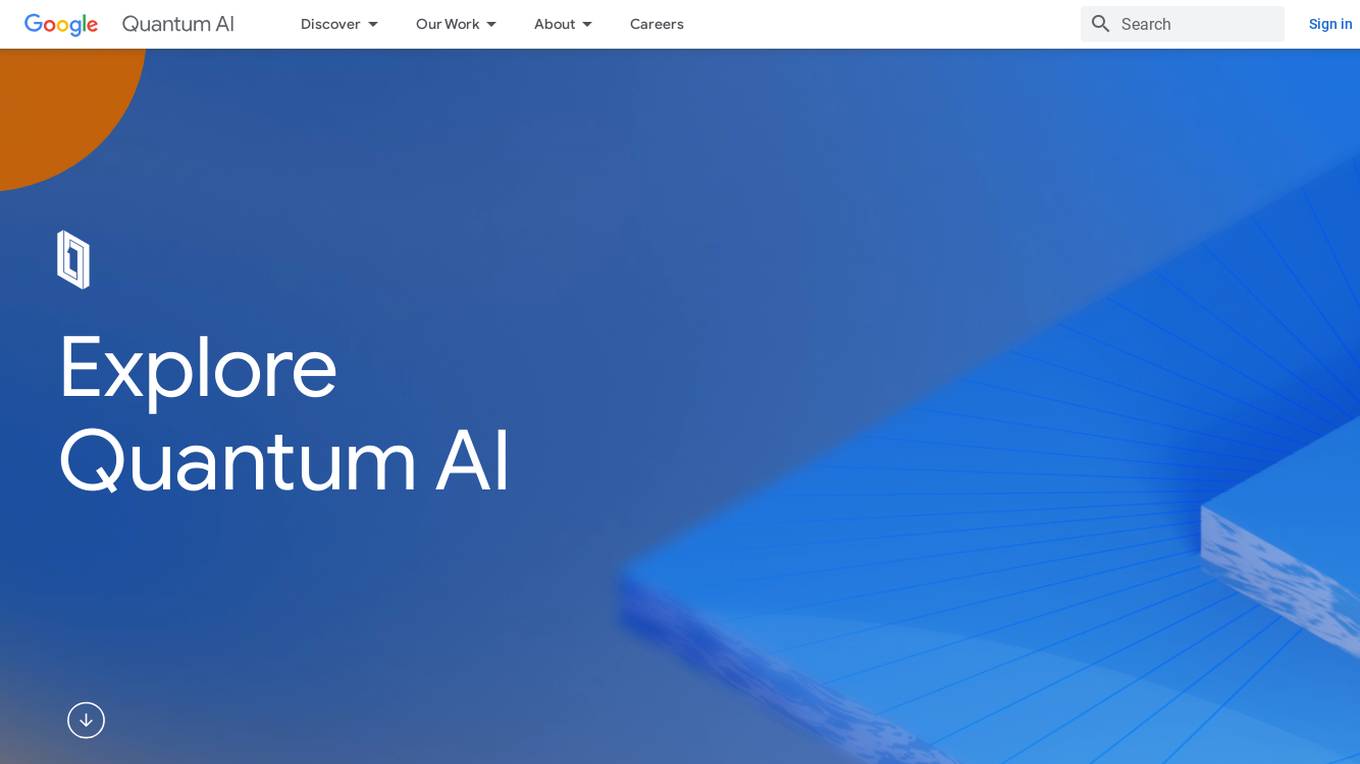
Google Quantum AI
Google Quantum AI is a leading platform dedicated to advancing the field of quantum computing. The platform offers educational resources, research publications, open-source tools like Cirq, and career opportunities. Google Quantum AI's mission is to build best-in-class quantum computing systems with error correction capabilities, enabling the solution of complex problems that are currently intractable for classical computers. The platform also hosts the XPRIZE Quantum Applications competition, collaborates with industry and academic partners to explore future applications of quantum computing, and shares research and blog posts on quantum algorithms and advancements.
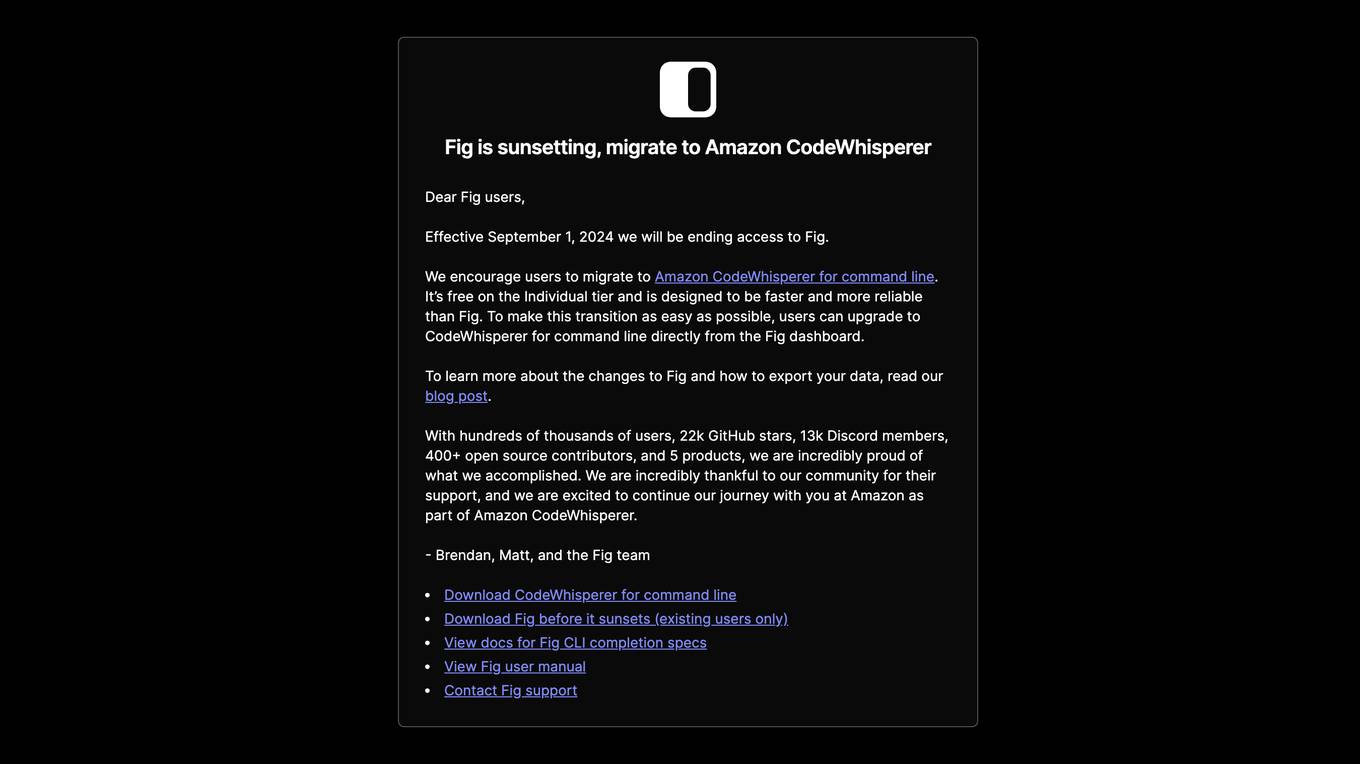
Fig
Fig is a command-line tool that helps developers write better code by providing them with real-time suggestions and completions. It is powered by artificial intelligence and machine learning, and it can be used to write code in a variety of programming languages. Fig is free to use and open source, and it is available for download on the Fig website.
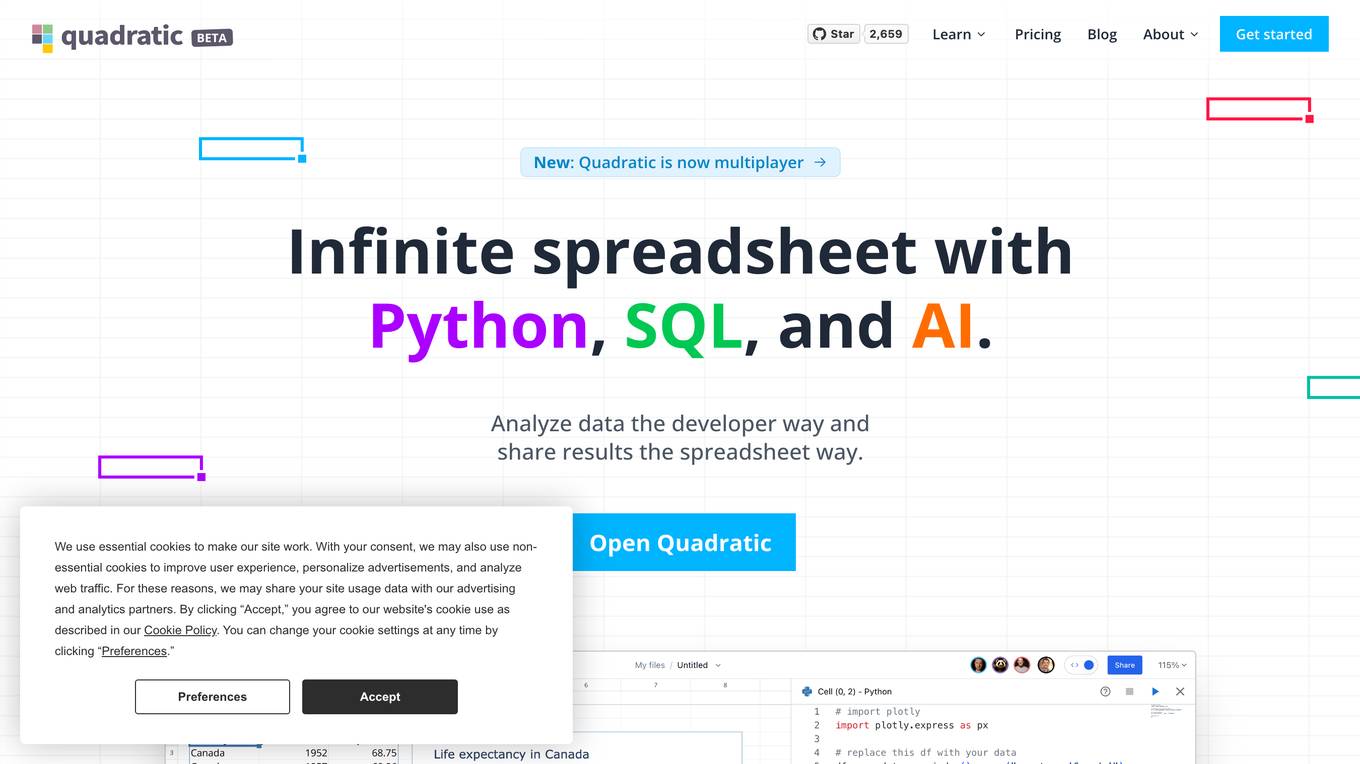
Quadratic
Quadratic is an infinite spreadsheet with Python, SQL, and AI. It combines the familiarity of a spreadsheet with the power of code, allowing users to analyze data, write code, and create visualizations in a single environment. With built-in Python library support, users can bring open source tools directly to their spreadsheets. Quadratic also features real-time collaboration, allowing multiple users to work on the same spreadsheet simultaneously. Additionally, Quadratic is built for speed and performance, utilizing Web Assembly and WebGL to deliver a smooth and responsive experience.
1 - Open Source AI Tools
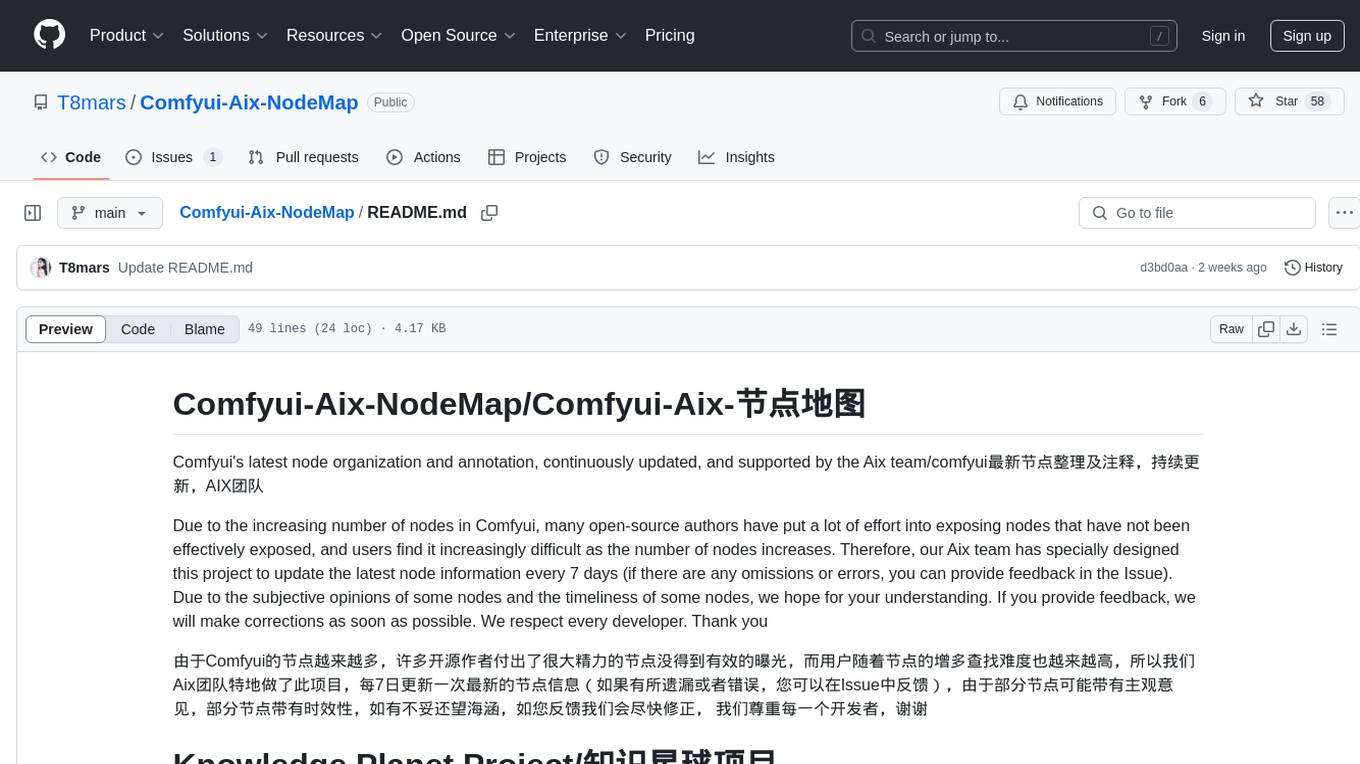
Comfyui-Aix-NodeMap
Comfyui-Aix-NodeMap is a project by the Aix team to organize and annotate the latest nodes in Comfyui. It aims to address the challenge of finding nodes effectively due to the increasing number of nodes. The project is updated every 7 days to provide the most recent node information. Users can provide feedback for any omissions or errors, and corrections will be made promptly. The project respects every developer and values community collaboration in improving node exposure and accessibility.
20 - OpenAI Gpts

Kisau Insights
Advice on fashion photography, photoshoot collaboration, and portfolio tips.
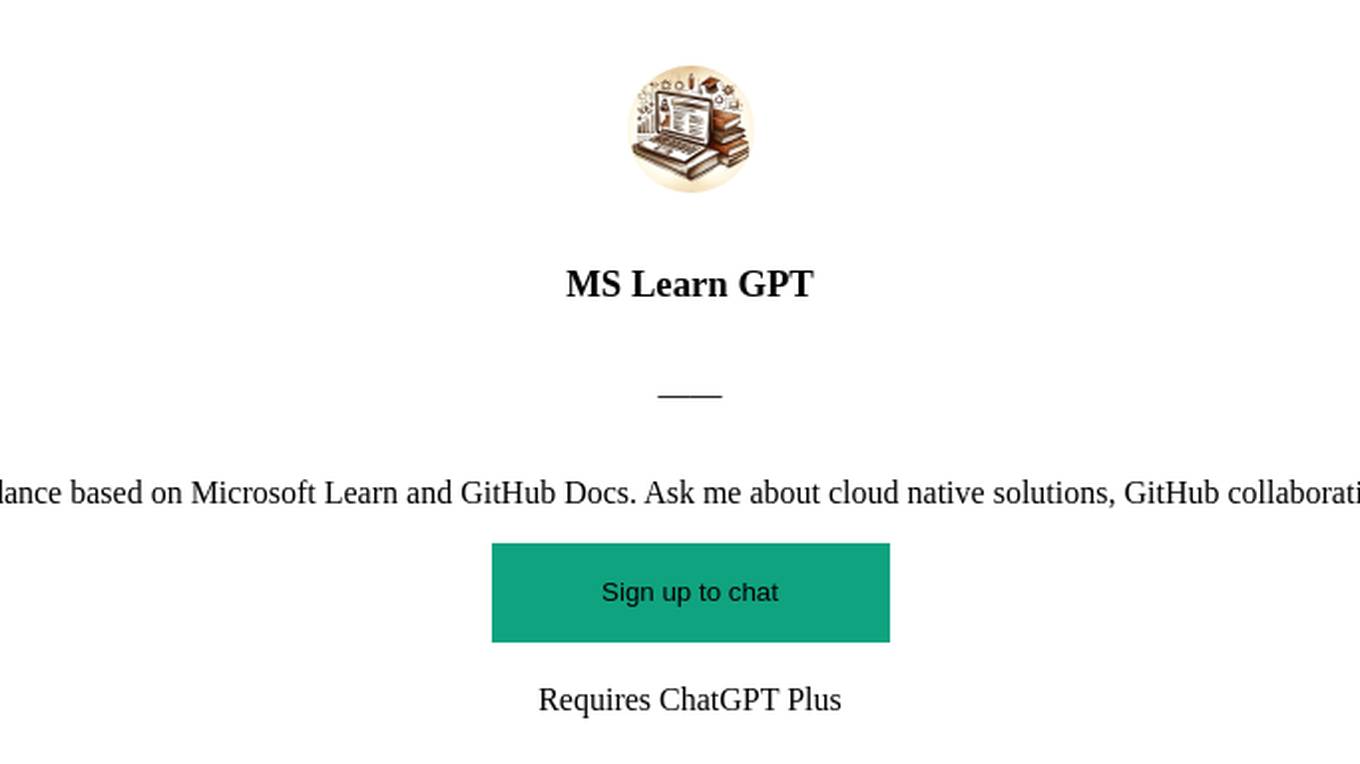
MS Learn GPT
Factual, clear guidance based on Microsoft Learn and GitHub Docs. Ask me about cloud native solutions, GitHub collaboration or certifications.

TiddlyWiki Guide
A TiddlyWiki expert providing detailed guidance on its usage and features.
Obsidian Expert
An expert in assisting with Obsidian, providing clear guidance and practical solutions.
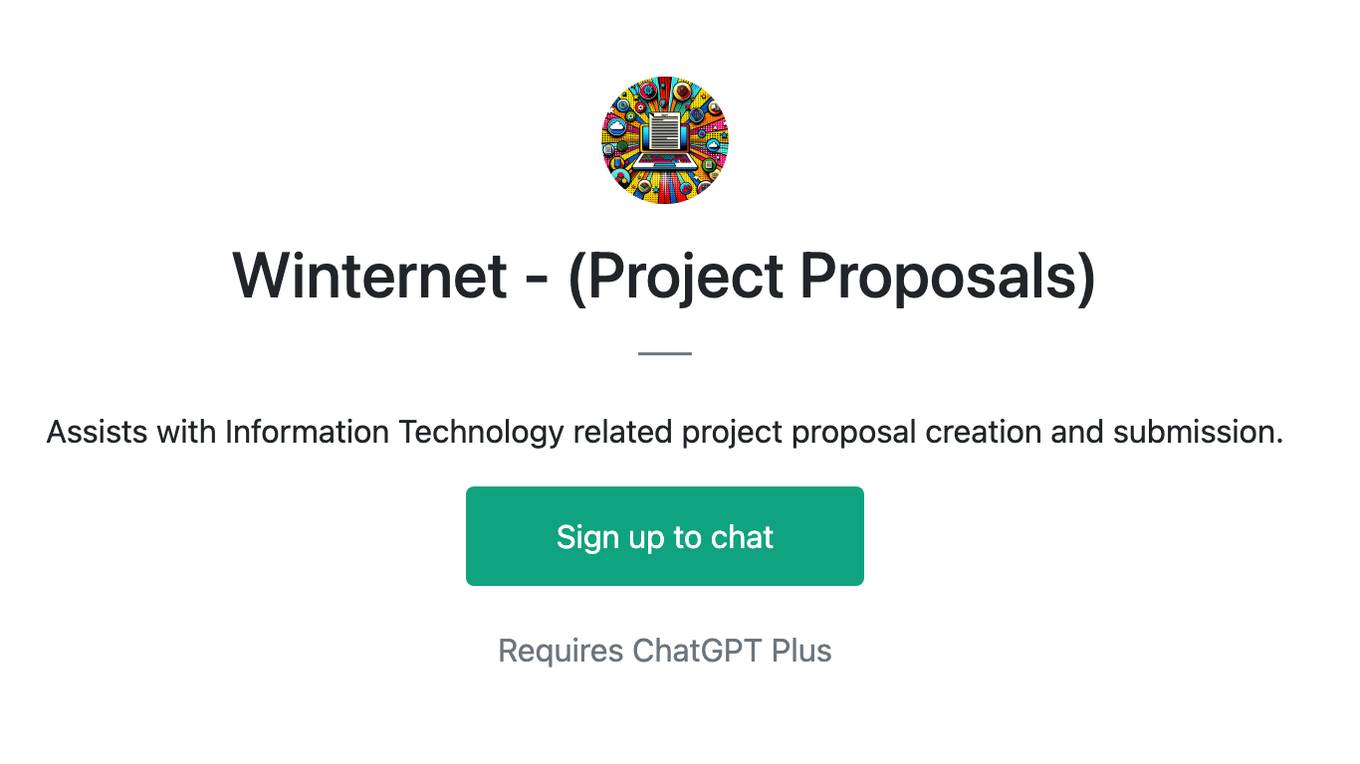
Winternet - (Project Proposals)
Assists with Information Technology related project proposal creation and submission.
